The amazing true story of Park Ranger Betty Reid Soskin
She is the oldest national park ranger in the country with a legacy of representing Black shipyard workers on the home front.
Betty Reid Soskin standing in front of the Rosie the Riveter Museum in Richmond, California.
Betty Reid Soskin is 96 years old yet lives her life with more energy and vitality than many people half her age. Over the course of her eventful life, she has been a staff member for the California legislature, a mother, an artist, a singer and an activist.
In her current role as a park ranger (she is the oldest national park ranger in the country), she gives weekly tours at the Rosie the Riveter World War II National Home Front Park in Richmond, California. Kaiser Permanente, through the Rosie the Riveter Trust, has been a major sponsor and champion of the park, which is the birthplace of our health plan.
In this podcast, Betty talks about her childhood and coming of age in Richmond, working for the union representing the African American shipyard workers there during World War II, and finding her identity as an African American woman.
She also shares her admiration for Kaiser Permanente co-founder, Henry J. Kaiser, who she considers to be a “great industrialist” and a man who forged ahead with audacity, both in building ships and creating a health plan for workers.
Betty Reid Soskin has become an icon for our time. Among her most important contributions has been adding the female African American voice to the home front story. She just came out with a memoir, “Sign My Name to Freedom: A Memoir of a Pioneering Life.”
Betty:
“I still am having first experiences at 96. I think that is absolutely incredible…I am having so many experiences that are so new for me, new for anybody, that I have the sense of having lived into the beginnings of a culture that is still unfolding for me. I don’t know what keeps one young except that I have lived my life in a constant state of surprise.”
Lincoln:
Hello. I’m Lincoln Cushing, Kaiser Permanente’s historian and archivist. Recently, I had the chance to sit down with Betty Reid Soskin, a remarkable woman, who is widely known as the country’s oldest national park ranger.
Betty is 96 years old yet lives with more energy and vitality than many of us can imagine. Over the course of her eventful life, she has been a staff member for the California legislature, a mother, an artist, a singer and an activist. In her current role as a park ranger, she gives weekly tours at the Rosie the Riveter, World War II National Home Front Park in Richmond, California. Kaiser Permanente, through the Rosie Trust, has been a major sponsor and champion of the park, which is the birthplace of our health plan.
In our wide-ranging conversation, Betty talked about her childhood and coming of age in Richmond, working for the segregated union for Black shipyard workers there during World War II, and finding her identity as an African-American woman. She also shared her admiration for Kaiser Permanente’s co-founder, Henry J Kaiser, who she considers to be a “great industrialist” and a man who forged ahead with audacity, both in building ships and creating a health plan for workers.
Betty Reid Soskin has become an icon for our region and our time. Among her most important contributions has been adding the African American voice to the home front story. Most recently she is coming out with a memoir. Clearly, she enjoys sharing her story.
Our conversation begins with her experience as a woman of color on the World War II home front.
Betty:
I was working in the shipyards during 1943 and early 1944. And it was at a time when it took $47.25 a week to support a family of five, if you were white. But our fathers and our uncles were in the service worker generation and they only earned 25 to 35 dollars a week. So, the women in my family have been working outside their home since slavery, because it has always taken two salaries to support Black families. Few Black men could do it on their own.
What I learned during that time was that the first to be hired were the men who were too old to fight. The second, were the boys who were too young to be drafted. The third, were single white women, and when that pool was exhausted, married white women. In the 1943, the first of Black men hired to do the heavy lifting for the women they’d brought on board. But they were hired as helpers and trainees only. They couldn’t go above that. And it wasn’t until late 1944, early 1945, that Black women began to be trained as welders. That sequencing has always been fascinating to me.
Lincoln:
As Betty prepared for her role as a park ranger, she immersed herself in historical texts. Studying up on wartime and homefront, she developed an appreciation and admiration for Henry Kaiser.
Betty:
I fell in love with Henry Kaiser. I mean, absolutely, he is my complete hero.
I never perceived Henry Kaiser as a social reformer. He was just a smart business man. He was just a great industrialist. He knew that if he could introduce the prefabrication mass projection techniques that Henry Ford was using in auto manufacturing, that he could revolutionize ship building. And his audacity! I mean, his absolute audacity was something that has convinced me ever since that he’s simply, that it wasn’t that he was trying to reform the world in his image, but that race was a non-issue for him. When he was hiring his people to work in the shipyard, when he did his most aggressive recruiting from the five southern states, Mississippi, Oklahoma, Arkansas, Texas, and Louisiana, when he brought that workforce into a city - a workforce of 98,000 people into a city with the population of 23,000 - I mean who would do that except Henry Kaiser. And no time for focus groups and diversity training. They have got to negotiate every single day of every hour in order to get through it without killing each other.
And because they were all living under the common threat of fascist world domination, behind a man who dared, they were able to do that, and together, working around the clock on three shifts a day for 364 days a year. Henry Kaiser and his band of sharecroppers for the most part produced 747 ships in three years and eight months. I mean, who would do that? Who could do that? I mean, he was absolutely amazing to me, he—and has continued to be. The more I learn about him, the more respect I have for him.
Lincoln:
After the park opened in 2012, Betty began her role as a park ranger – providing context, insight and details that only someone who witnessed it first-hand can share.
Betty:
In the park, I’m in the theatre for hour-long programs three to five times a week. There are programs by other rangers taking on various aspects of the Home Front story because of course, the Home Front Story has so many moving parts. It’s so incredible. It’s a 120,000 Japanese and Japanese-Americans interned during that time, 70,000 of them being American citizens, the story of the explosion of Port Chicago, the mutiny trials at Mare Island. A story of African American migration out of the southern states into the northeast and the west, seeking work in defense plants, sometimes successfully, sometimes not.
I tell the story of the African American experience because that’s the only part of the story I can talk about with any kind of authority, because that’s the history that I lived. The whole idea of being a Rosie the Riveter simply passed me by. I don’t relate to being a Rosie, because that’s not an experience I had. That was a white woman’s story.
I use a 15-minute film called “Home Front Heroes” in my presentations. And it limits itself just to telling what happened in the City of Richmond. And to the extent that the National Park Service has gone to the full expense of creating this wonderful film, because it really is a wonderful film, telling the story of Richmond, when it’s over I stand up and say, “yes, but this is what you’re not seeing. This is what happened.”
And then I tell the story of the African American experience, which is pretty much left out of that story. And I find that the audiences are not only ready, but are appreciative of learning that history. Today’s audiences are ready for conversations that I don’t think would have even been possible 15 or 20 years ago. And on my part, for the first time, I have a sense of being able to tell that story sitting on a kitchen stool in a park ranger uniform supported fully by a federal agency that I get to tell that story to a welcoming audience from inside the circle. 15 or 20 years ago I would have been talking about that from outside. I’m sharing that history now from inside the circle, at a time when “we the people” includes me.
I’m surprised that I have so few African Americans in my audiences.
But when I do get African Americans, they come up to me and hug and say, “you told it right.” And that’s great because they’re hearing their stories from me. And they’re hearing it among white folks, and that’s different. Those are the conversations we have around the kitchen table, but white folks are not there. But when I’m talking about them publicly without compromise, I think that they identify with me, and that’s something that I enjoy.
Something magical happens in that place, in that theatre. I have learned in the process that there are many truths. The concept of conflicting truths dawned on me one day after watching the film and hearing Agnes Moore say on the film, talking about the war and the home front effort, and she says, “it was the greatest coming together of the American people that I have ever witnessed.” And when she first used to say that, and I listened to her and I think, “wow, how can Agnes say that? She knows that isn’t true.” And one day the concept of conflicting truths dawned on me, and I realized that there were many truths, that we all create our own reality. And that there are truths that rise out of religious conviction, that truths rise out of educations, they rise out of life experience. And that as long as there was a place on the planet where Agnes’s truth and mine can coexist, that was going to be enough for me from then on, and it is. And now I get to sit on a kitchen stool in a uniform of a park ranger and I get to share that insight with 14-year-olds that come through here. And they don’t have to get to be 90 years old like I did to discover the magic and conflicting truths. That is a privilege.
I grew up at a time when I would utter the Pledge of Allegiance without sound until I attended the inauguration of President Obama, because I knew it was a lie – “with liberty and justice for all” didn’t include me or my family. But I also knew that many people around me who were doing the Pledge of Allegiance in good faith didn’t know that. And that the fault lay somewhere beyond them.
And I never wanted to be insulting to those people by not going through at least the motions, but I wouldn’t allow sound out. And that was from the time I was 13, when I remembered discovering that in middle school, realizing also that the people around me, the children around me, had no idea that that didn’t mean me. And the teacher at the head of the class is someone I adored, and that she didn’t know. And it wasn’t until I was on the Capitol Mall on January 20 of 2009, then I went audible, because suddenly I was inside the circle. And I’ve been inside ever since.
I know that the audiences that I share my story with are moved by it because I am in touch with my own history, through family stories, that I am a descendant of slavery, that my great grandmother, Leontine Breaux Allen who was born into slavery in 1846 in Saint James Parish, Louisiana, was in my breast pocket, in a photograph when the two of us went to inaugurate America’s first African American President. That I knew her through my lifetime because I was 27 years old when she died. I knew her, my slave ancestor, as the matriarch of my family. That I get to share that story with the audience as it comes through at the end of my talk moves me because it keeps me relevant and grounded, because I’m acting not only for myself, but for the five generations that came before me and I’m very aware of it. I’ve been doing my talk now in that theatre for years and every time there’s a fresh audience the material is fresh for me and I’m sharing that history with people who are moved by it. And I really, really enjoy that.
Lincoln:
Betty speaks with confidence about her identity as a strong and independent woman. But she reveals that it was not always so, that she initially followed a conventional path of young wife and mother, and modeled herself after women who lived to support the man in their lives. She awakened to her more liberated identity in mid-life, and has not looked back.
Betty:
My life had been defined by my women’s role, which at that point was defined quite differently than it is now. That successful women were those who were married by the time they were 23 and had a first child, that you lived in support of the man in your life.
I think that I was defined by the men in my life until I was 50. A first husband, after divorce, a second husband. And first by my father. But I was really compliant in that. I was not a rebellious woman. I pretty much flunked marriage, and didn’t come into my own until the year 1987, I think it was, when they all died within three months. And I was suddenly not Betty Charbonnet, I wasn’t Betty Reid, I wasn’t Betty Soskin, I was just Betty, and I had to figure out what that was. And that has taken on a number of career moves in trying to identify just who I was until now, I’m a ranger. And I was a field representative for California State Assembly and soon I will be an author. But I’m still trying to figure out just who that Betty is.
Lincoln:
Betty may be in her 90s, but by all appearances, she shows no intention of slowing down. The years have provided her with perspective, wisdom, and an enduring curiosity about the future.
Betty:
I’m not a planner. I don’t really know what’s going to happen tomorrow or the next week, and don’t have any intention of even guessing. For instance, I am beginning to entertain the notion of—what’s beyond ranger? I mean, okay, so, I’m going to be an author. Now I’m going to be doing book signings. I mean, come on, who would have even guessed that that was possible, or that I have anything still to say at 96. But that life is still unfolding. I do have a sense of being in uncharted territory. I don’t have any models to live by. I’ve outlived all my peers, most of them.
Every day is a gift because I’ve lost my sense of future, but my sense of past has been enhanced. So now, I can go back and see the patterns in life. I know we’ve lived in these periods of chaos ever since 1776. We’re on this upwards spiral that keeps touching the same places at higher and higher levels.
And it’s in these periods of chaos that democracy is being redefined, and that that’s when we have access to the reset buttons. And it’s in those periods that the stage is set for the next generation that’s going to follow us and we’re caught now in another one of those periods of redefinition. And, for me, it’s hopeful and exciting. And I think that I’m going to be carried away kicking and screaming when I die, [Laughs] because I’m not going to ever be ready to go. [Laughs]
-
Social Share
- Share The Amazing True Story of Park Ranger Betty Reid Soskin on Pinterest
- Share The Amazing True Story of Park Ranger Betty Reid Soskin on LinkedIn
- Share The Amazing True Story of Park Ranger Betty Reid Soskin on Twitter
- Share The Amazing True Story of Park Ranger Betty Reid Soskin on Facebook
- Print The Amazing True Story of Park Ranger Betty Reid Soskin
- Email The Amazing True Story of Park Ranger Betty Reid Soskin

November 4, 2025
A best place to work for veterans
As a 2025 top Military Friendly Employer, Kaiser Permanente supports veterans …
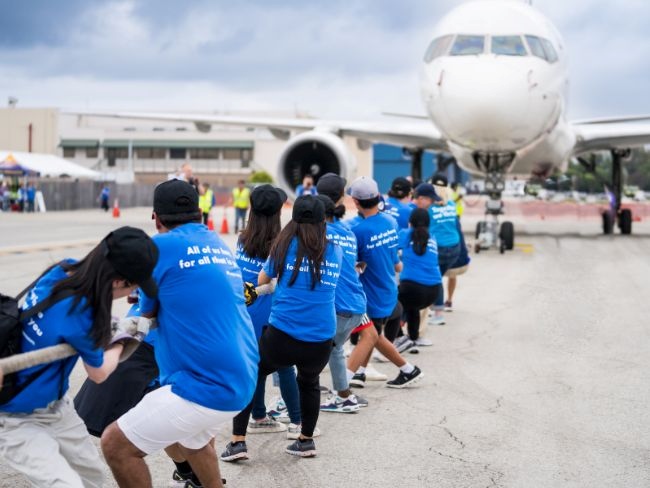
October 15, 2025
Kaiser Permanente shows up strong for the annual plane pull
Championing health equity and teamwork drives Kaiser Permanente’s support …
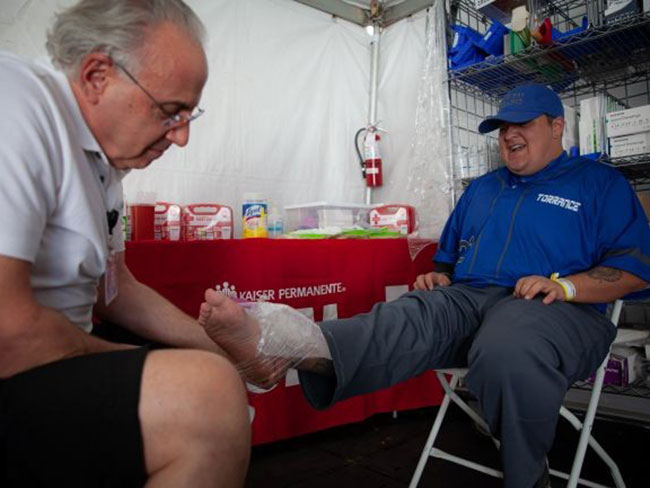
July 16, 2025
More than just a game
Kaiser Permanente partners with Special Olympics of Southern California …
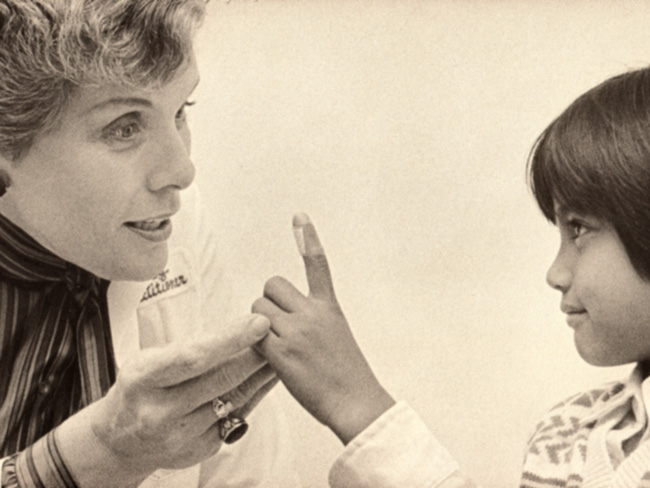
April 30, 2025
A history of trailblazing nurses
Nursing pioneers lay the foundation for the future of Kaiser Permanente …
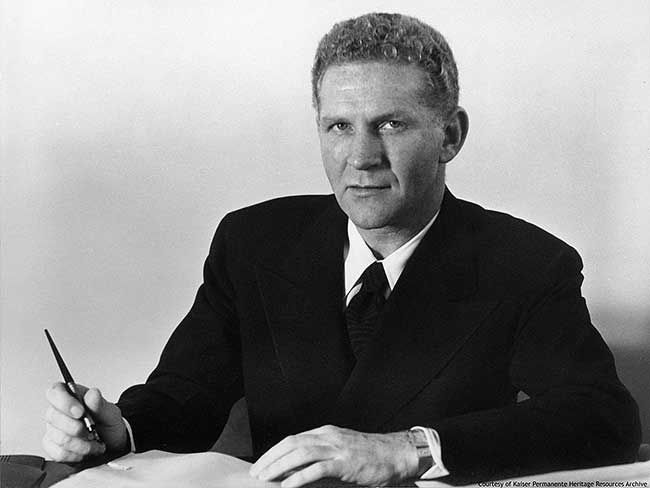
April 16, 2025
Sidney R. Garfield, MD: Pioneer of modern health care
Kaiser Permanente’s co-founding physician spread prepaid care and the idea …

March 27, 2025
We’re committed to mentorship, mental health, and communities
Kaiser Permanente awarded Elevate Your G.A.M.E. a grant to expand program …
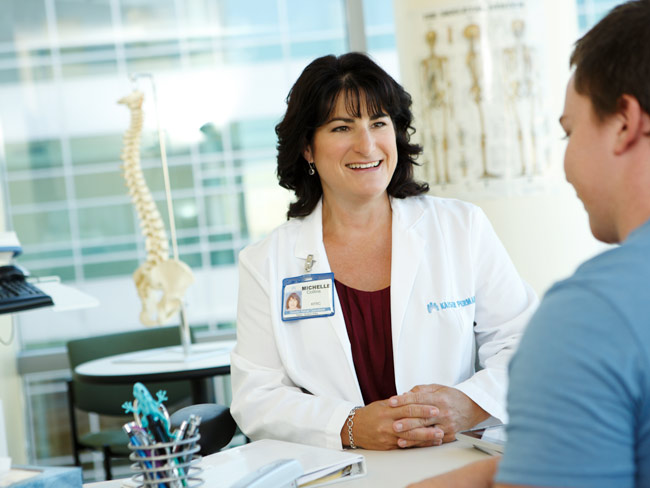
March 25, 2025
AI in health care: 7 principles of responsible use
These guidelines ensure we use artificial intelligence tools that are safe …
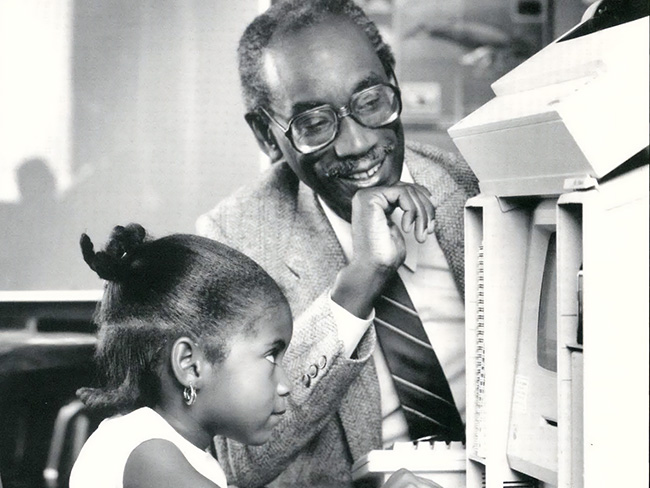
March 17, 2025
Remembering Bill Coggins and his lasting legacy
The founder of the Kaiser Permanente Watts Counseling and Learning Center …

December 26, 2024
Linking isolated communities to care
A collaborative partnership, powered by trusted nonprofit partners, brings …
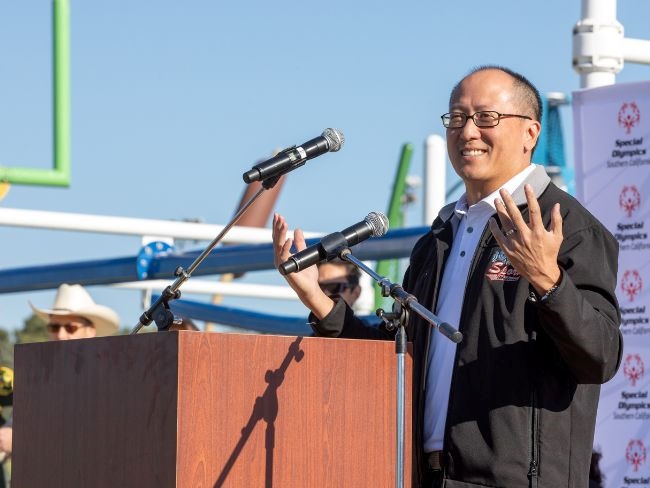
December 16, 2024
Helping to build and support inclusive communities
At the Special Olympics Southern California Fall Games, Kaiser Permanente …
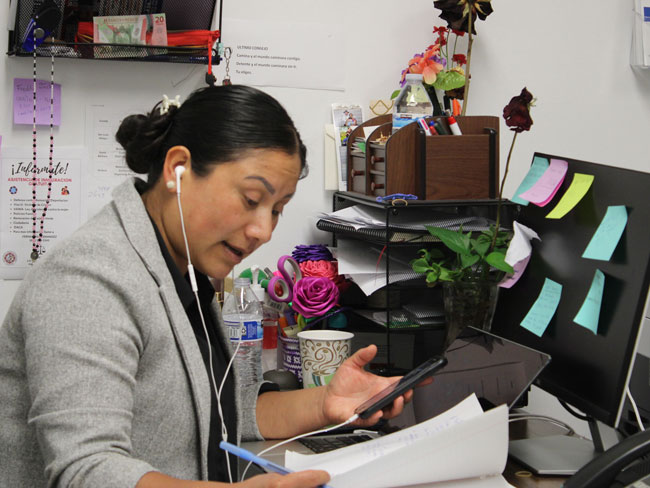
November 11, 2024
Health care coverage now accessible to uninsured people
Indigenous farmworkers may qualify for new Kaiser Permanente coverage.

November 11, 2024
Medicare telehealth flexibilities should be here to stay
We urge Congress to extend policies that have improved access to care and …

October 15, 2024
Our dedication to fostering well-being and equity
The 2023 Kaiser Permanente Southern California Community Health County …
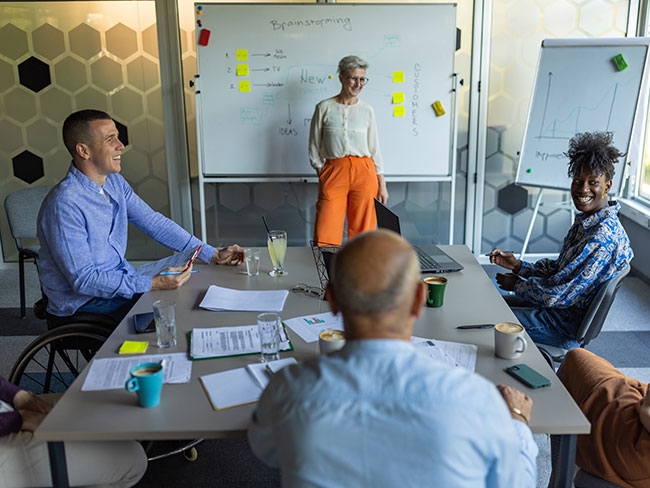
October 2, 2024
Honored for supporting people with disabilities
Leading U.S. disability organizations recognize Kaiser Permanente for supporting …
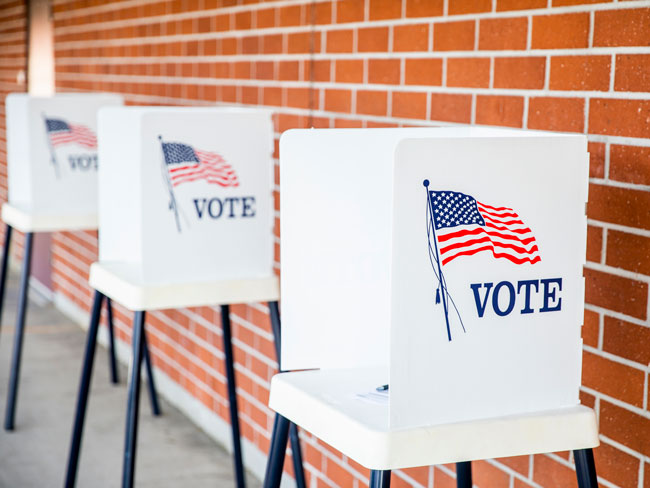
September 16, 2024
Voting affects the health of our communities
In honor of National Voter Registration Day, we encourage everyone who …
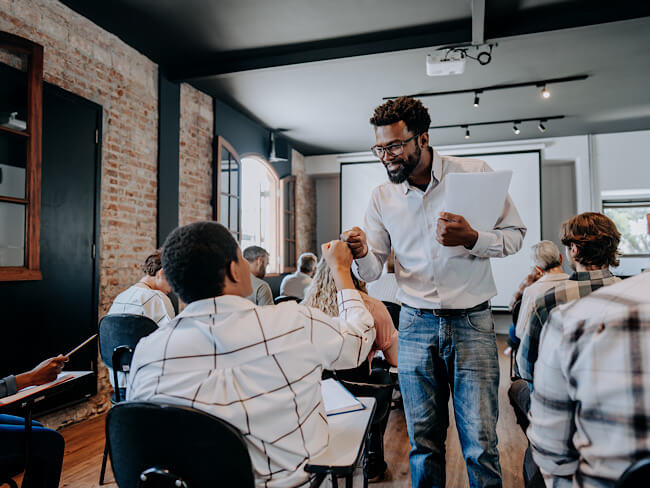
July 16, 2024
Teacher residency program improves retention and diversity
A $1.5 million Kaiser Permanente grant addresses Colorado teacher shortage …

July 2, 2024
Reducing cultural barriers to food security
To reduce barriers, Food Bank of the Rockies’ Culturally Responsive Food …

June 19, 2024
Investments in Black community promote total health for all
Funding from Kaiser Permanente in Washington helps to promote mental health, …
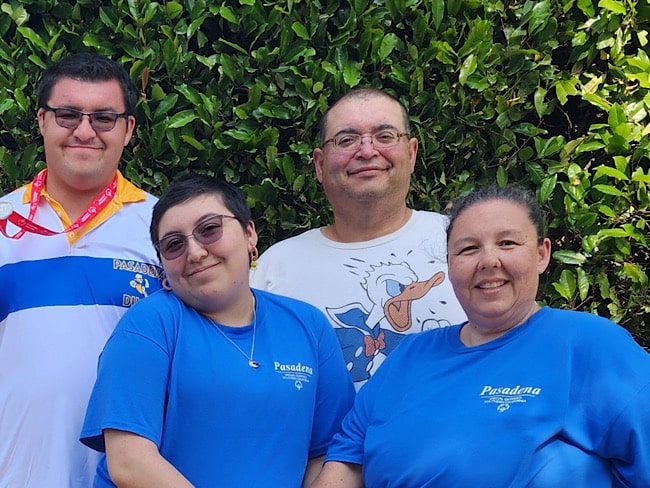
May 30, 2024
Special Olympics Summer Games: Will you play a part?
Kaiser Permanente employee Carrie Zaragoza volunteers for Special Olympics …

May 14, 2024
Recognized again for leadership in diversity and inclusion
Fair360 names Kaiser Permanente to its Top 50 Hall of Fame for the seventh …

May 7, 2024
Can the badly broken prescription drug market be fixed?
Prescription drugs are unaffordable for millions of people. With the right …
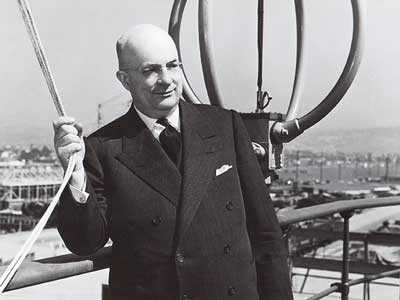
May 3, 2024
Henry J. Kaiser: America’s health care visionary
Kaiser was a major figure in the construction, engineering, and shipbuilding …

April 12, 2024
It’s time to address America’s Black maternal health crisis
Health care leaders and policymakers should each play their part to help …
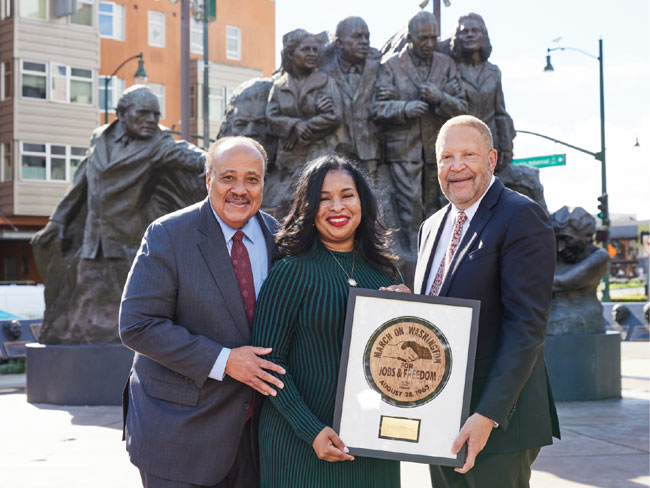
April 8, 2024
Martin Luther King Jr.’s dream is alive at Kaiser Permanente
Greg A. Adams, chair and chief executive officer of Kaiser Permanente, …
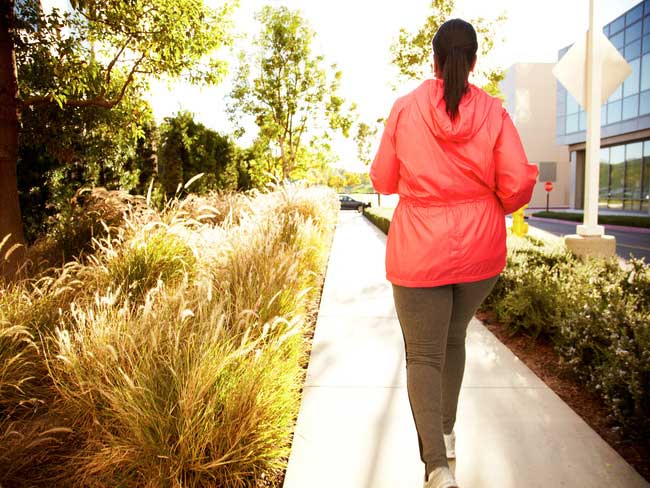
March 18, 2024
Program helps member prioritize her health
Medical Financial Assistance program supports access to health care.

March 6, 2024
Former employee honored for supporting South LA families
Bill Coggins, who founded the Kaiser Permanente Watts Counseling and Learning …
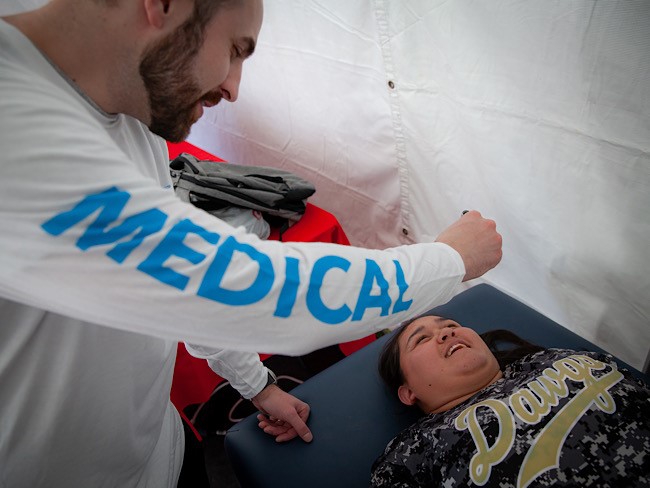
March 4, 2024
Taking care of Special Olympics athletes
Kaiser Permanente physicians and medical students provide medical exams …

February 13, 2024
A legacy of life-changing community support and partnership
The Kaiser Permanente Watts Counseling and Learning Center started as a …

February 2, 2024
Expanding medical, social, and educational services in Watts
Kaiser Permanente opens medical offices and a new home for the Watts Counseling …

December 20, 2023
Championing inclusivity at the Fall Games
Kaiser Permanente celebrates inclusion at Special Olympics Southern California …

December 7, 2023
Safe, secure housing is a must for health
We offer housing-related legal help to prevent evictions and remove barriers …
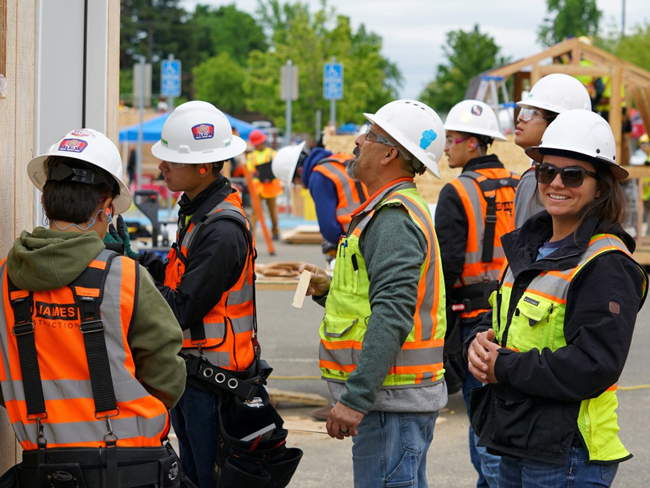
December 6, 2023
Solid foundation: How construction careers support health
Steady employment can improve a person's health and well-being. Our new …

November 1, 2023
Meet our 2023 to 2024 public health fellows
To help develop talented, diverse community leaders, Kaiser Permanente …
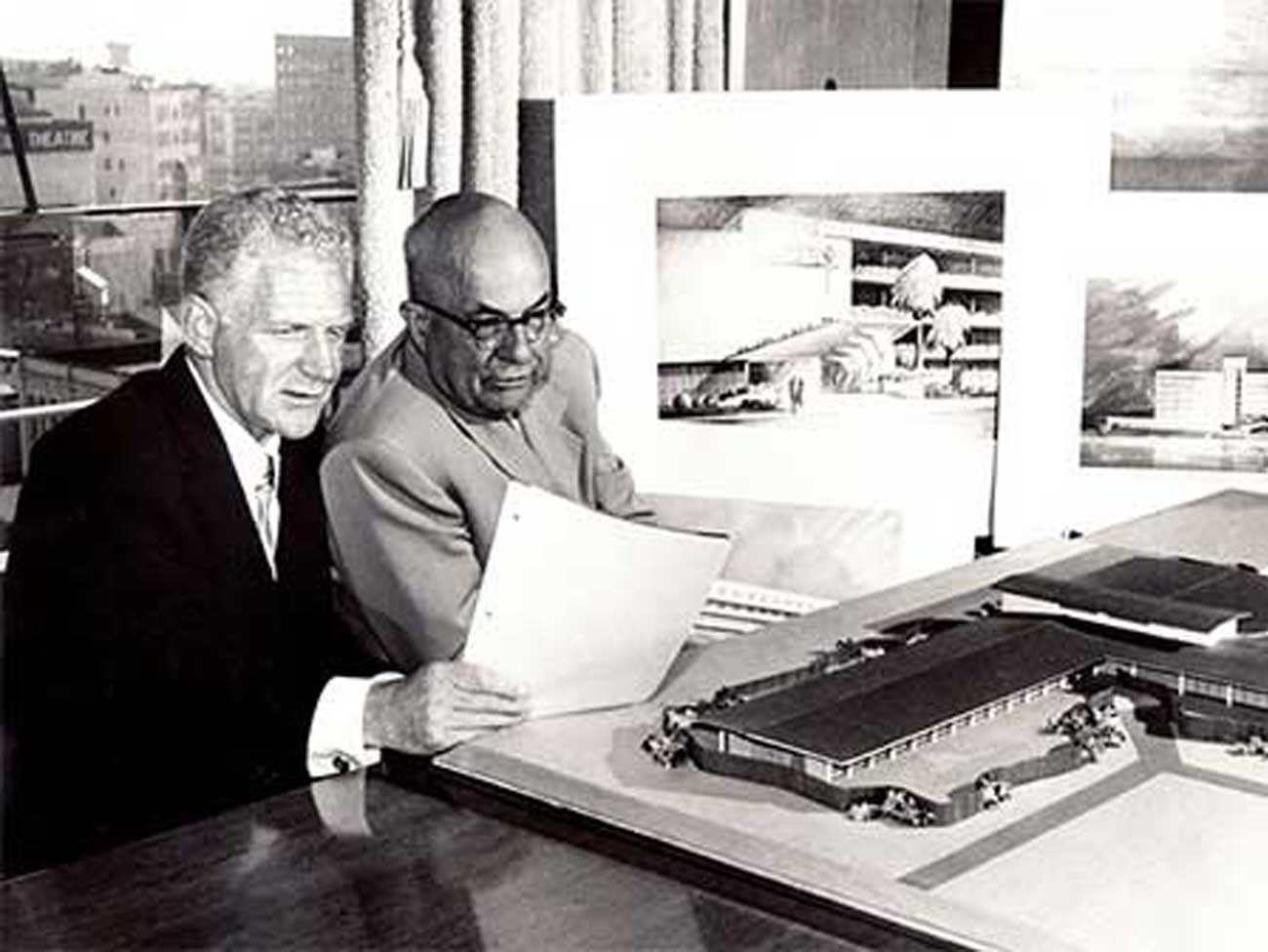
October 17, 2023
How Kaiser Permanente evolved
Sidney R. Garfield, MD, and Henry J. Kaiser came together to pioneer an …
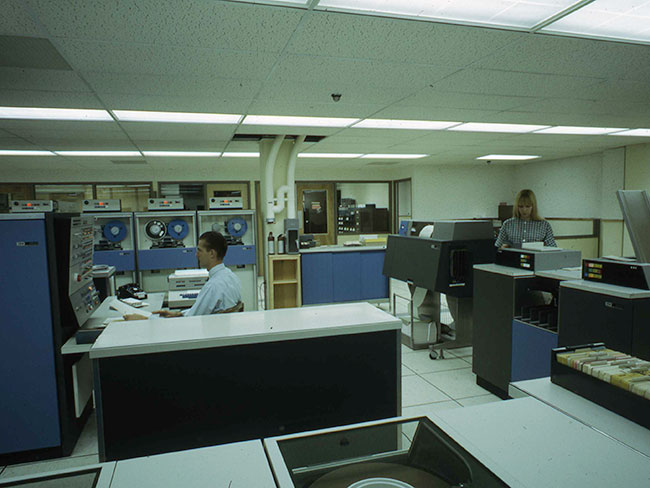
September 13, 2023
Transforming the medical record
Kaiser Permanente’s adoption of disruptive technology in the 1970s sparked …

August 15, 2023
'Hot-spot' strategy gets more Californians vaccinated
A new location-based vaccine strategy by Kaiser Permanente was successful …

August 10, 2023
Highlighting our community health work in Southern California
The Kaiser Permanente Southern California 2022 Community Health Snapshot …
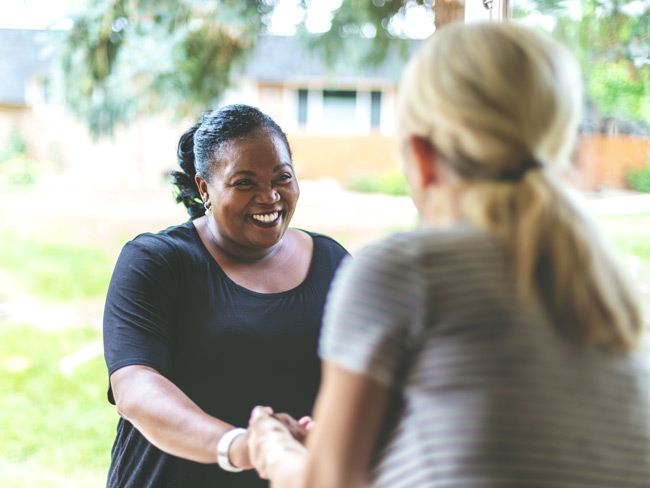
August 2, 2023
Social health resources are just a click or call away
The Kaiser Permanente Community Support Hub can help members find community …

June 30, 2023
Our response to Supreme Court ruling on LGBTQIA+ protections
Kaiser Permanente addresses the Supreme Court decision on LGBTQIA+ protections …

June 29, 2023
Our response to Supreme Court's ruling on affirmative action
Kaiser Permanente addresses the Supreme Court decision on affirmative action …
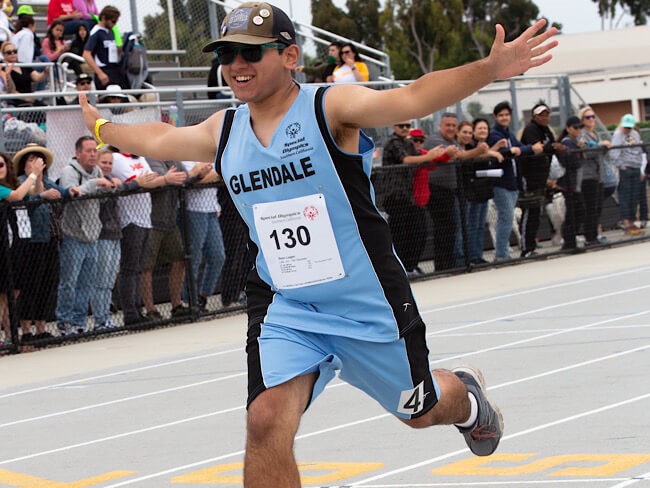
June 29, 2023
Special Olympics athletes go for the gold
Kaiser Permanente celebrated its sixth year as official health partner …
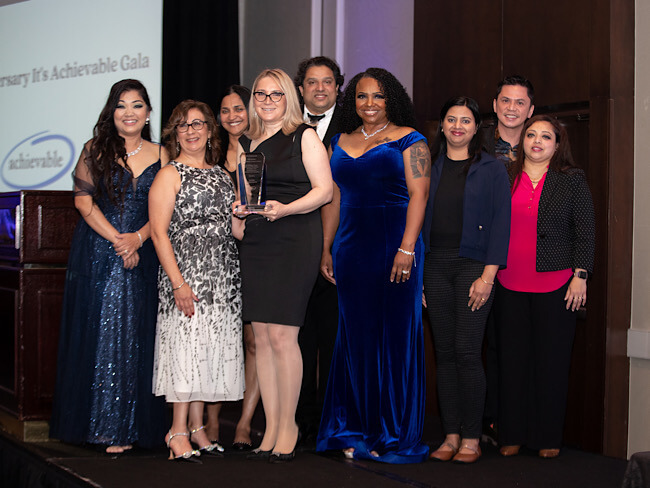
June 14, 2023
Honored for commitment to people with disabilities
The Achievable Foundation recognized Kaiser Permanente for its work to …

June 7, 2023
Engaging businesses for action on climate and health equity
New climate collaborative with BSR announced at joint Kaiser Permanente …

May 22, 2023
Investing and partnering to build healthier communities
Kaiser Permanente supports Asian Americans Advancing Justice to promote …

May 10, 2023
A workplace for all
We value and respect employees and physicians of all backgrounds, identities, …
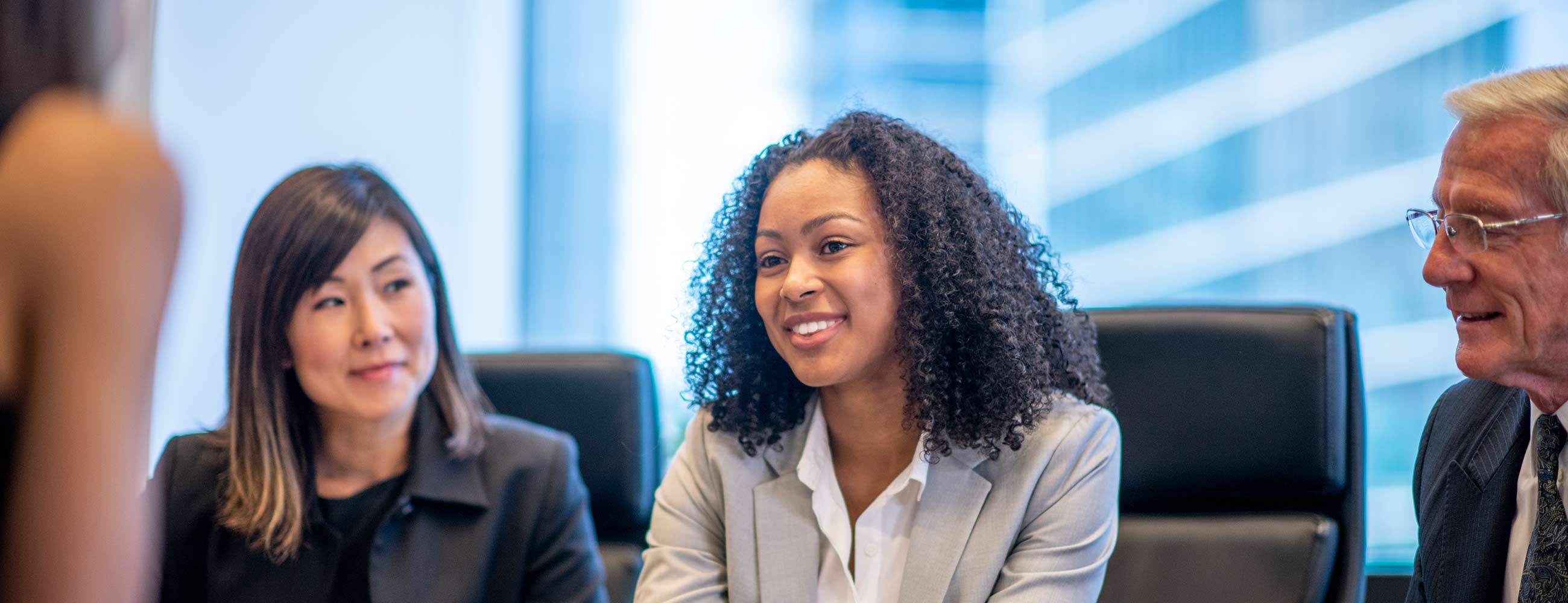
May 10, 2023
Equity, inclusion, and diversity
We strive for equity and inclusion for all.
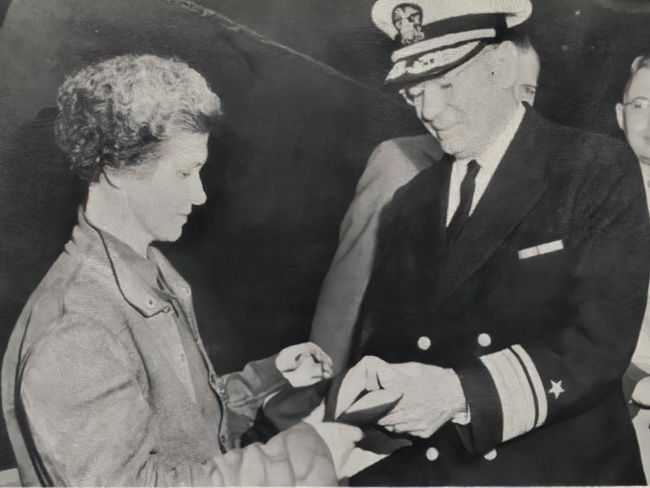
May 2, 2023
Women lead an industrial revolution at the Kaiser Shipyards
Early women workers at the Kaiser shipyards diversified home front World …
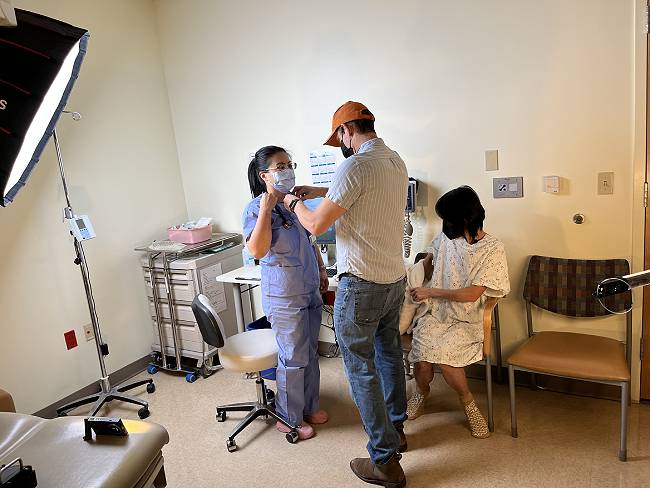
April 27, 2023
Inspiring students to pursue health care careers
Kaiser Permanente is confronting future health care staffing challenges …

April 25, 2023
Hannah Peters, MD, provides essential care to ‘Rosies’
When thousands of women industrial workers, often called “Rosies,” joined …

April 11, 2023
Collaboration is key to keeping people insured
With the COVID-19 public health emergency ending, states, community organizations, …

April 5, 2023
Housing help brings stability to patients’ lives
With medical-legal partnerships, we’re helping prevent evictions. Patients …
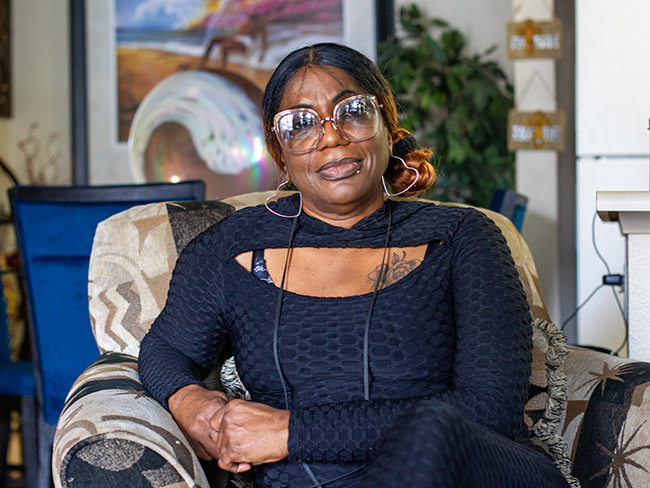
April 3, 2023
Hospital patients who are homeless connected to housing
A Kaiser Permanente program connects patients experiencing homelessness …

March 29, 2023
Supporting a safer future with public health
We’re partnering on 3 initiatives to strengthen public health in the United …

February 17, 2023
Good health starts in our communities: 2022 by the numbers
Kaiser Permanente supports total health in our communities in partnership …
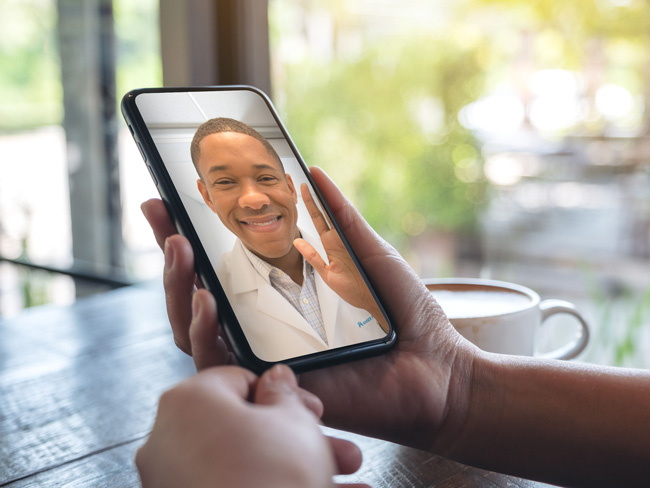
January 17, 2023
Lawmakers must act to boost telehealth and digital equity
Making key pandemic-era telehealth policies permanent and ensuring more …

November 14, 2022
It’s time to rethink health care quality measurement
To meaningfully improve health equity, we must shift our focus to outcomes …
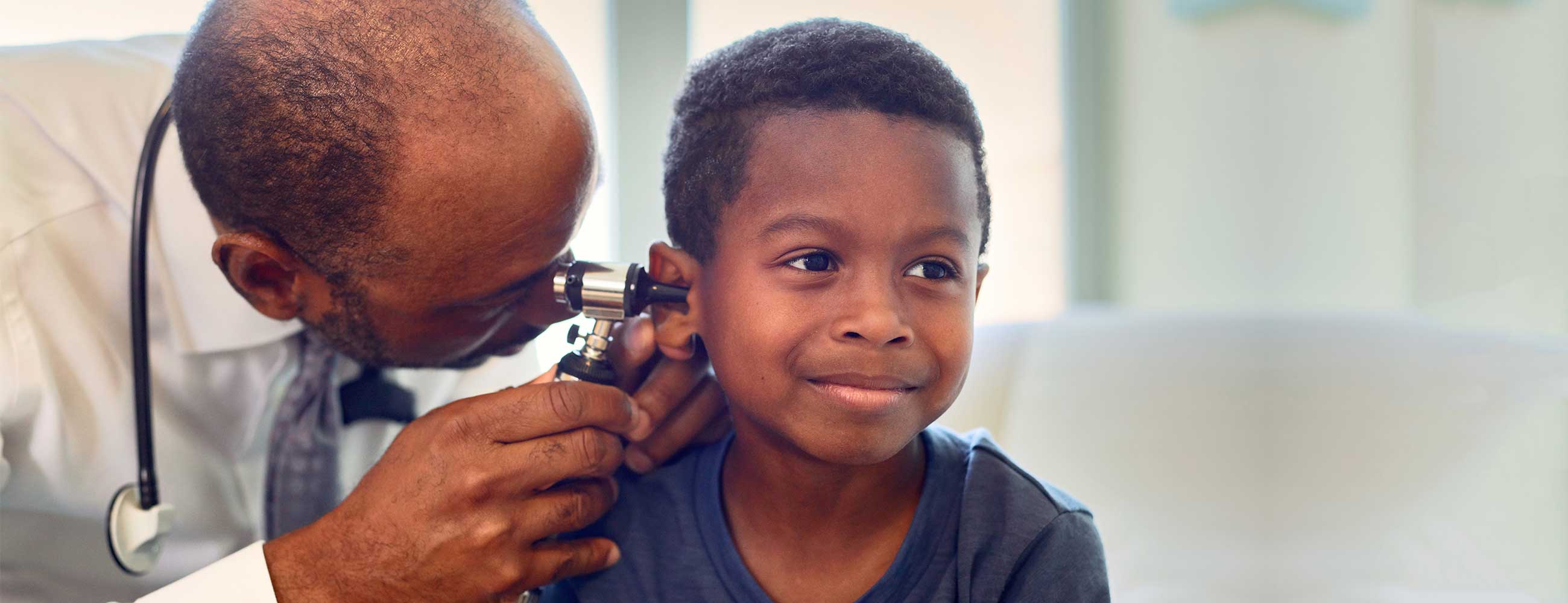
November 11, 2022
High-quality, equitable care
We believe everyone has a right to good health.
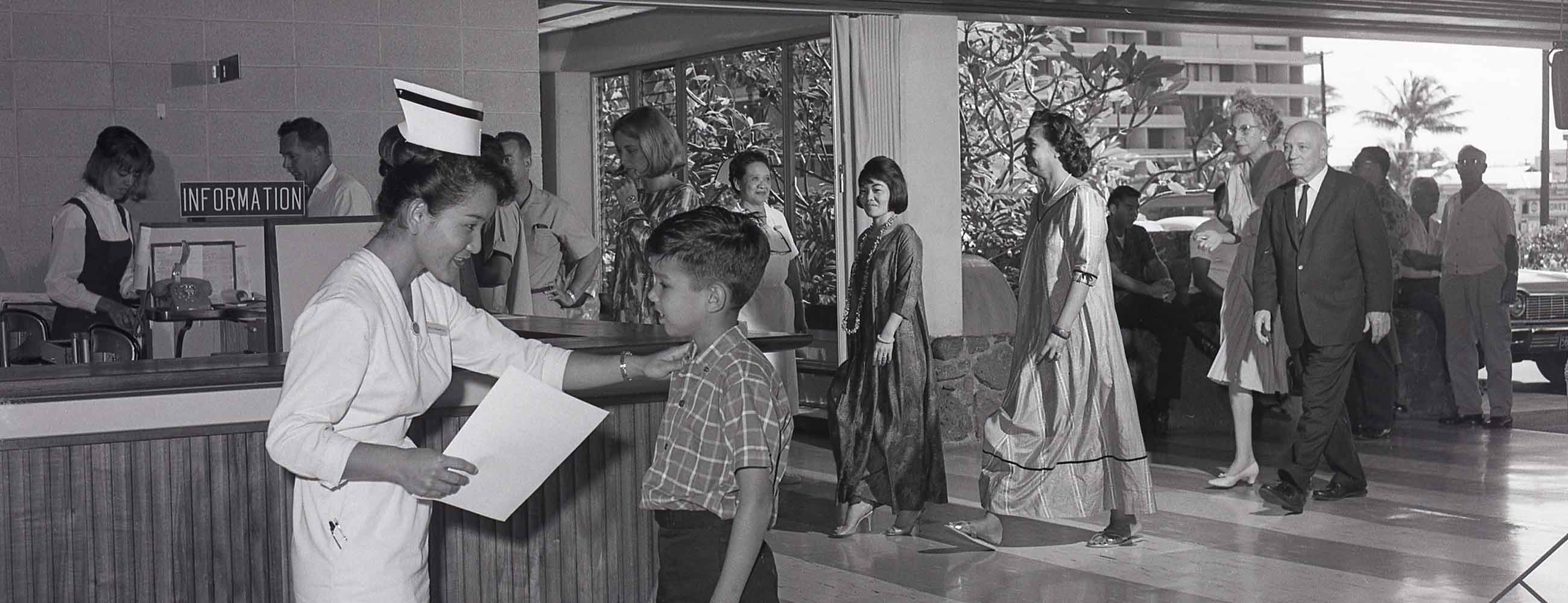
November 11, 2022
A history of leading the way
For over 75 innovative years, we have delivered high-quality and affordable …
November 11, 2022
Early leaders in equity and inclusion
Explore Kaiser Permanente’s commitment to equitable, culturally responsive …
November 11, 2022
Pioneers and groundbreakers
Learn about the trailblazers from Kaiser Permanente who shaped our legacy …
November 11, 2022
Our integrated care model
We’re different than other health plans, and that’s how we think health …
November 11, 2022
Our history
Kaiser Permanente’s groundbreaking integrated care model has evolved through …
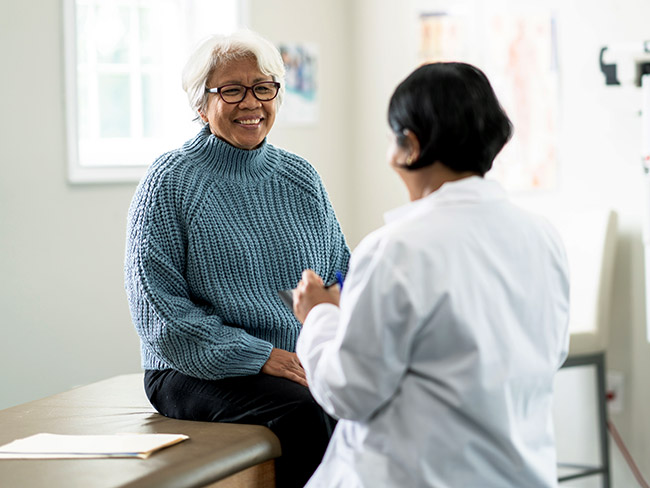
November 8, 2022
Protecting access to medical care for legal immigrants
A statement of support from Kaiser Permanente chair and CEO Greg A. Adams …
October 14, 2022
Contact Heritage Resources
October 1, 2022
Innovation and research
Learn about our rich legacy of scientific research that spurred revolutionary …

July 29, 2022
Health care workforce
Strengthening America’s health care workforce
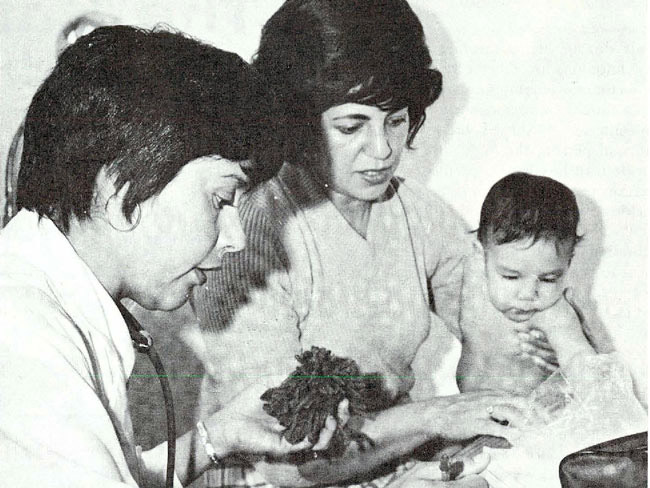
May 26, 2022
Nurse practitioners: Historical advances in nursing
A doctor shortage in the late 1960s and an innovative partnership helped …

March 22, 2022
Our commitment to equity and our LGBTQIA+ communities
A statement from chair and chief executive officer Greg A. Adams.

February 21, 2022
A best place to work for LGBTQ+ equality
Human Rights Campaign Foundation gives Kaiser Permanente another perfect …
February 14, 2022
Health care scholarships available
Kaiser Permanente in Hawaii to provide up to $100,000 in scholarships to …
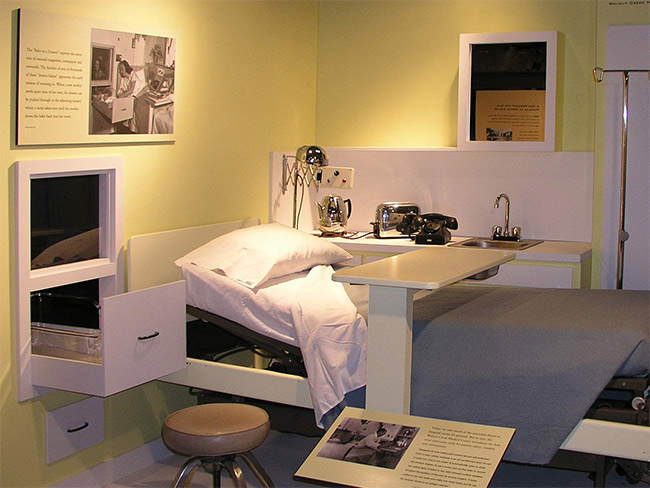
September 10, 2021
‘Baby in the drawer’ helped turn the tide for breastfeeding
This innovation in rooming-in allowed newborns to stay close to mothers …
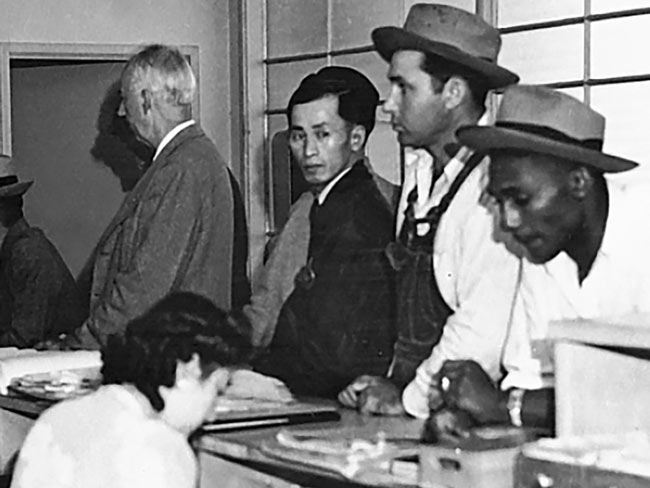
August 25, 2021
Kaiser Permanente’s history of nondiscrimination
Our principles of diversity and our inclusive care began during World War …
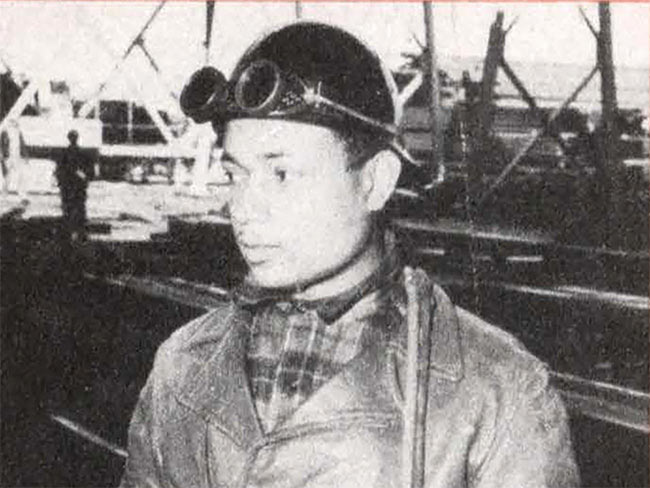
July 22, 2021
A long history of equity for workers with disabilities
In Henry J. Kaiser’s shipyards, workers were judged by their abilities, …
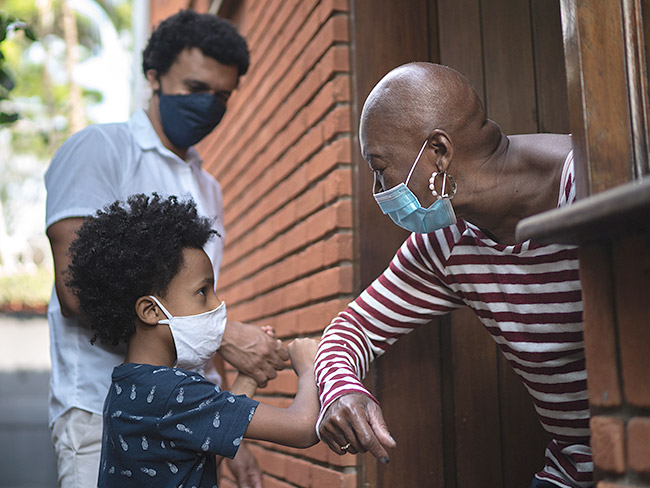
July 7, 2021
Achieving health equity
Equal medical care is not enough to end disparities in health outcomes.
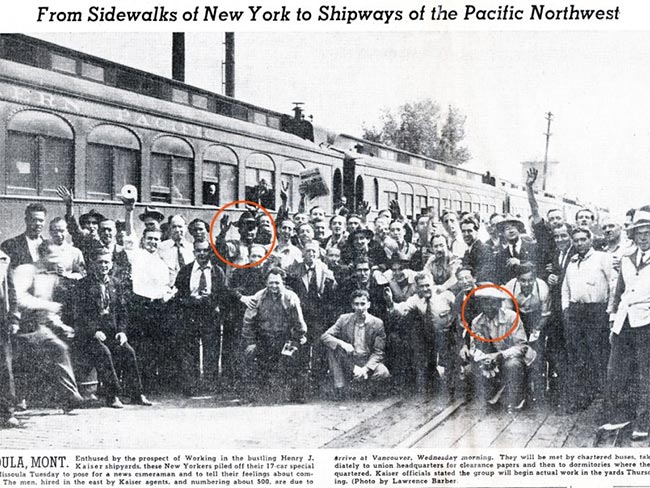
June 2, 2021
Path to employment: Black workers in Kaiser shipyards
Kaiser Permanente, Henry J. Kaiser’s sole remaining institutional legacy, …
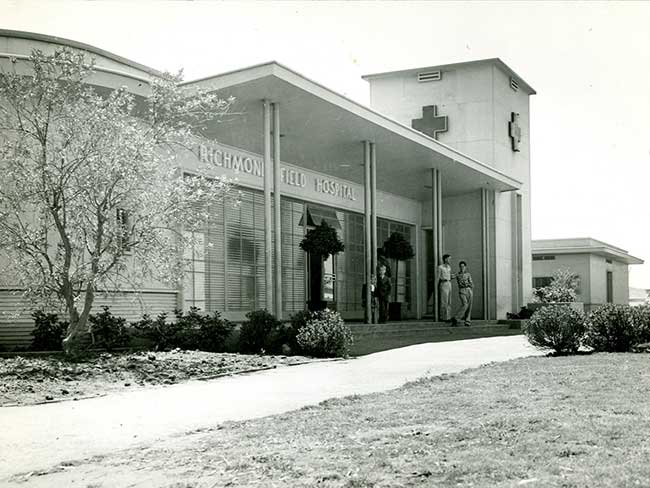
February 22, 2021
The Permanente Richmond Field Hospital
Forlorn and all but forgotten, it played a proud role during the World …
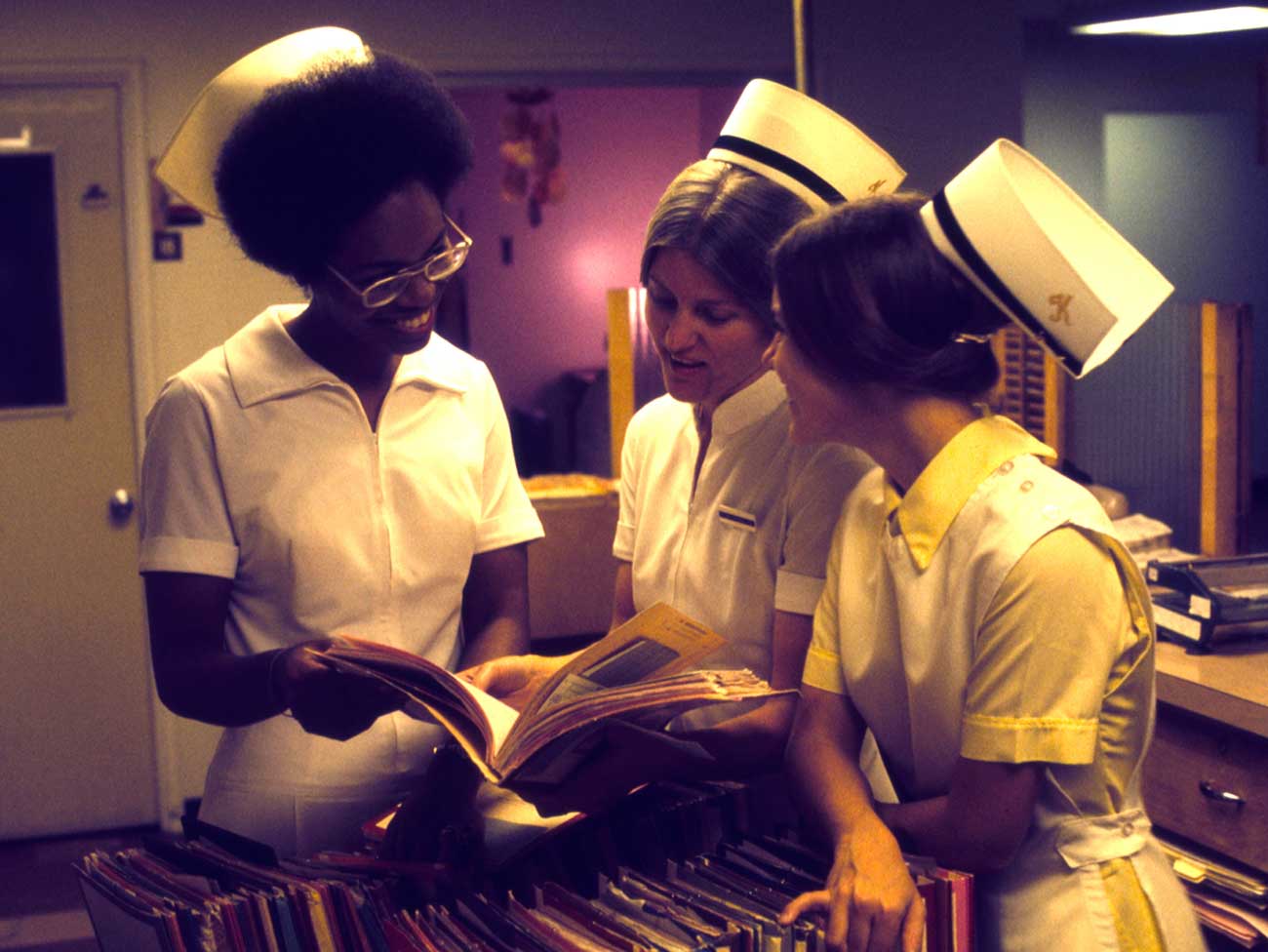
September 28, 2020
A legacy of disruptive innovation
Proceeds from a new book detailing the history of the Kaiser Foundation …
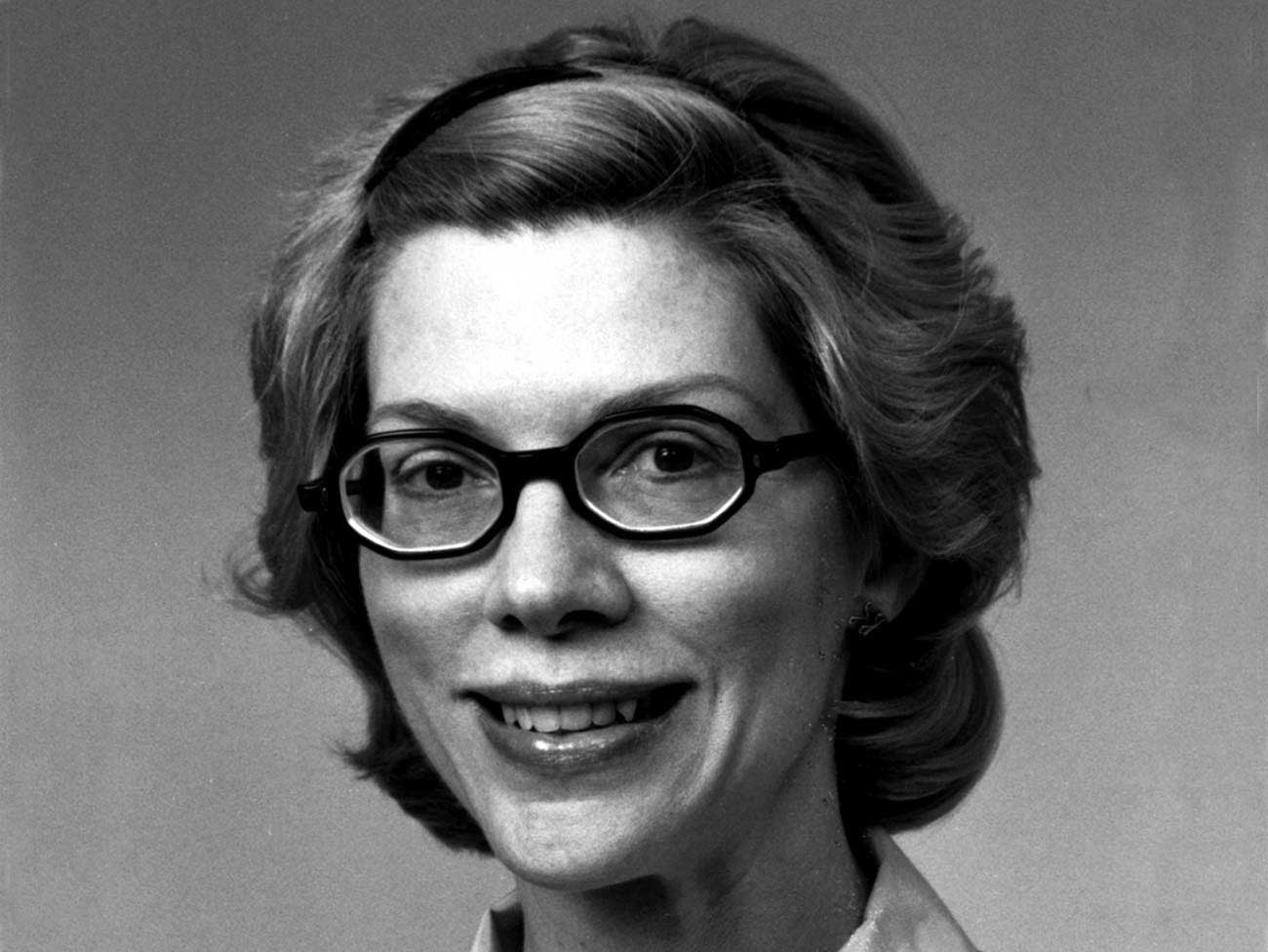
August 26, 2020
Kaiser Permanente’s pioneering nurse-midwives
The 1970s nurse-midwife movement transformed delivery practices.
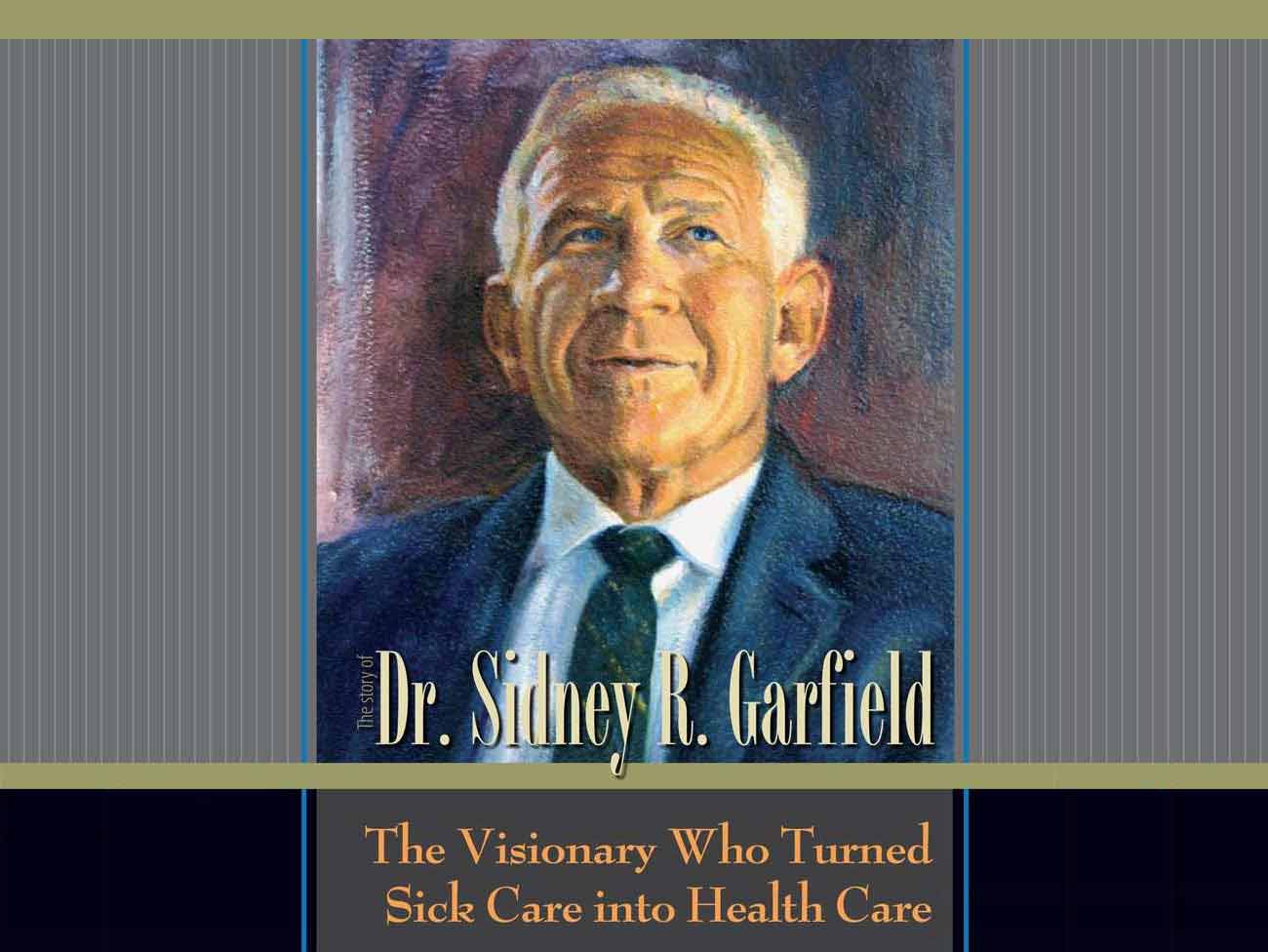
July 30, 2020
Books and publications about our history
Interested in learning more about the history of Kaiser Permanente and …
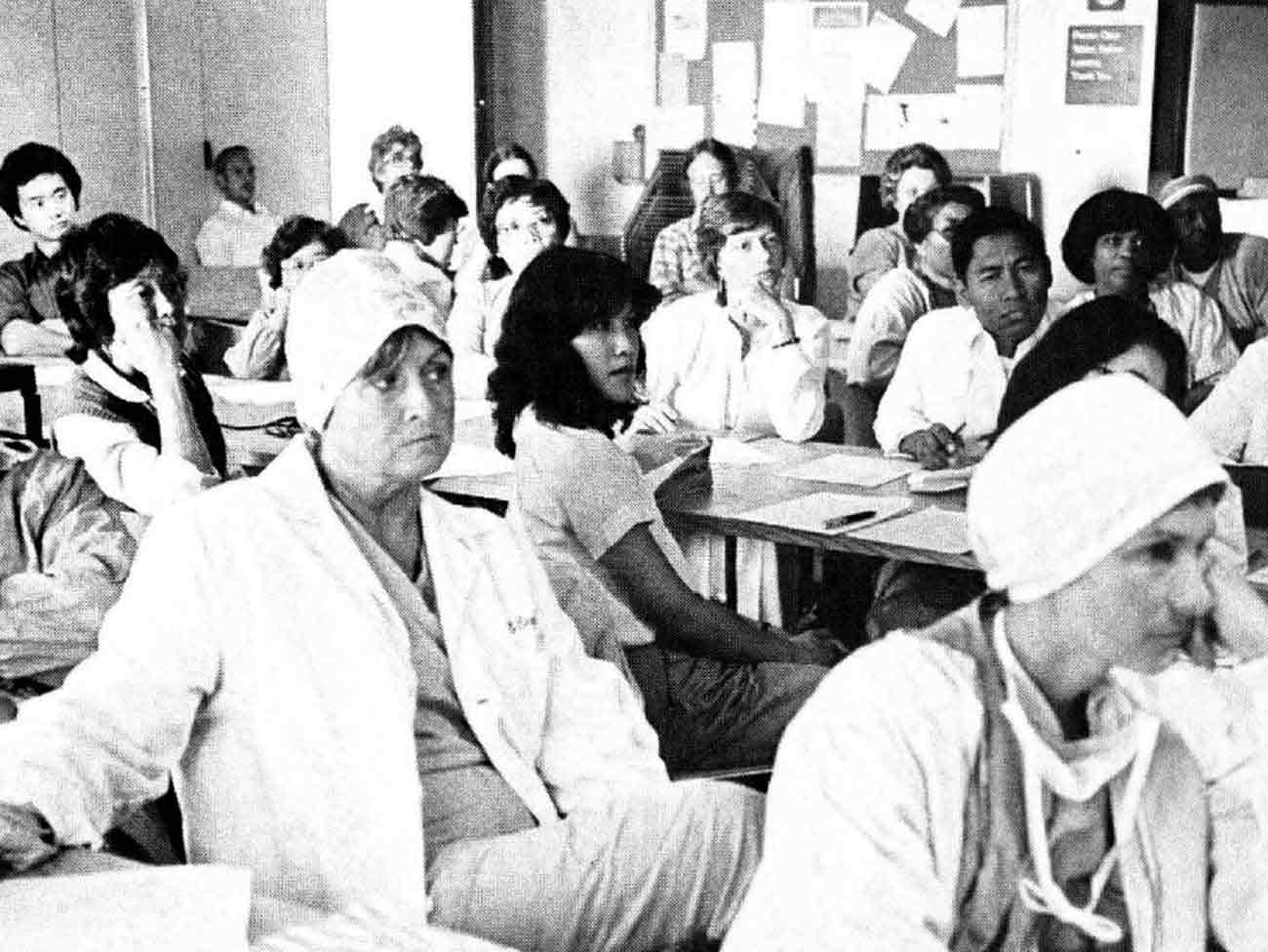
May 18, 2020
Nurses step up in crises
Kaiser Permanente nurses have been saving lives on the front lines since …
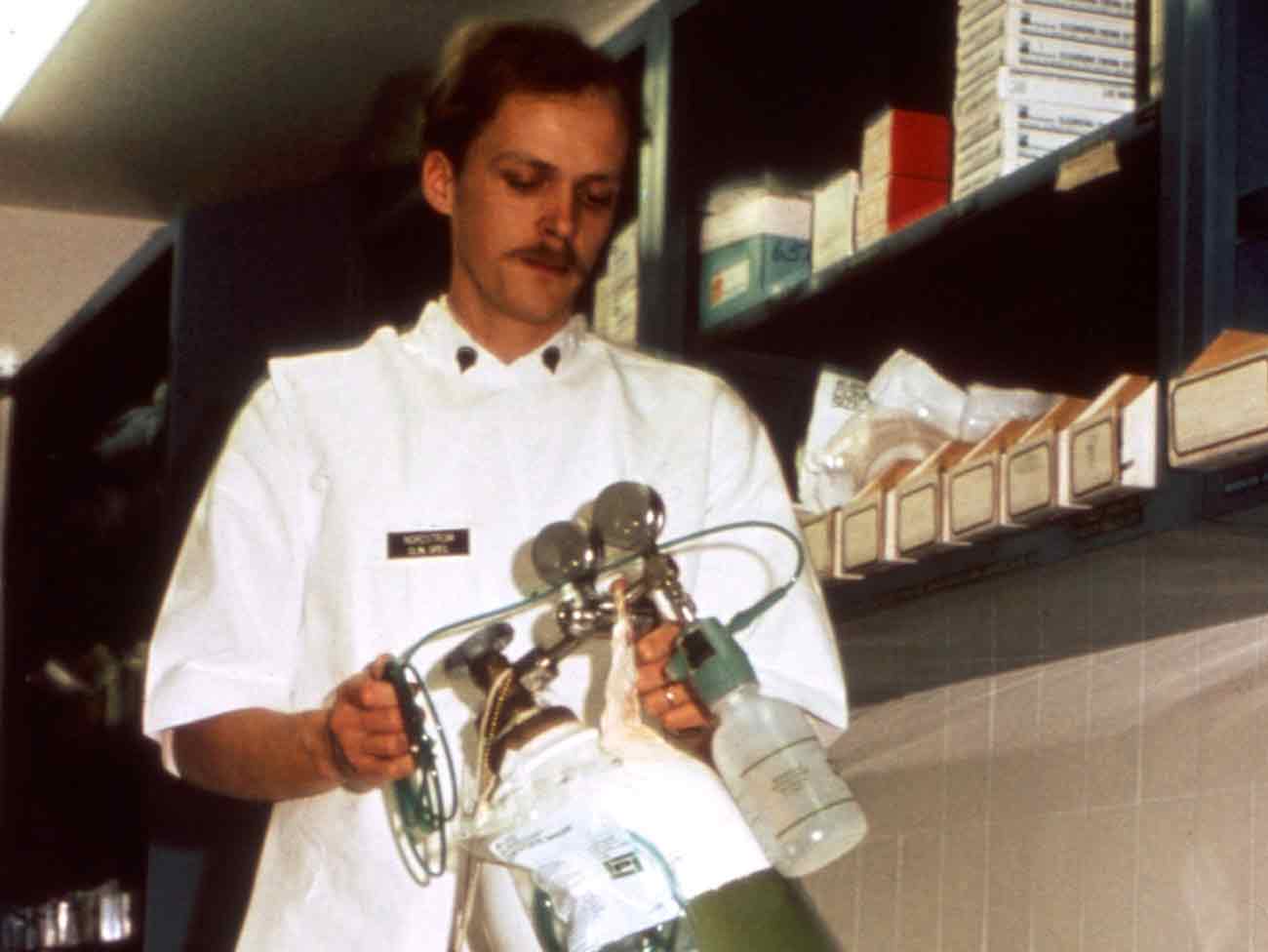
November 8, 2019
Swords into stethoscopes — veterans in health professions
Kaiser Permanente has actively hired veterans in all capacities since World …
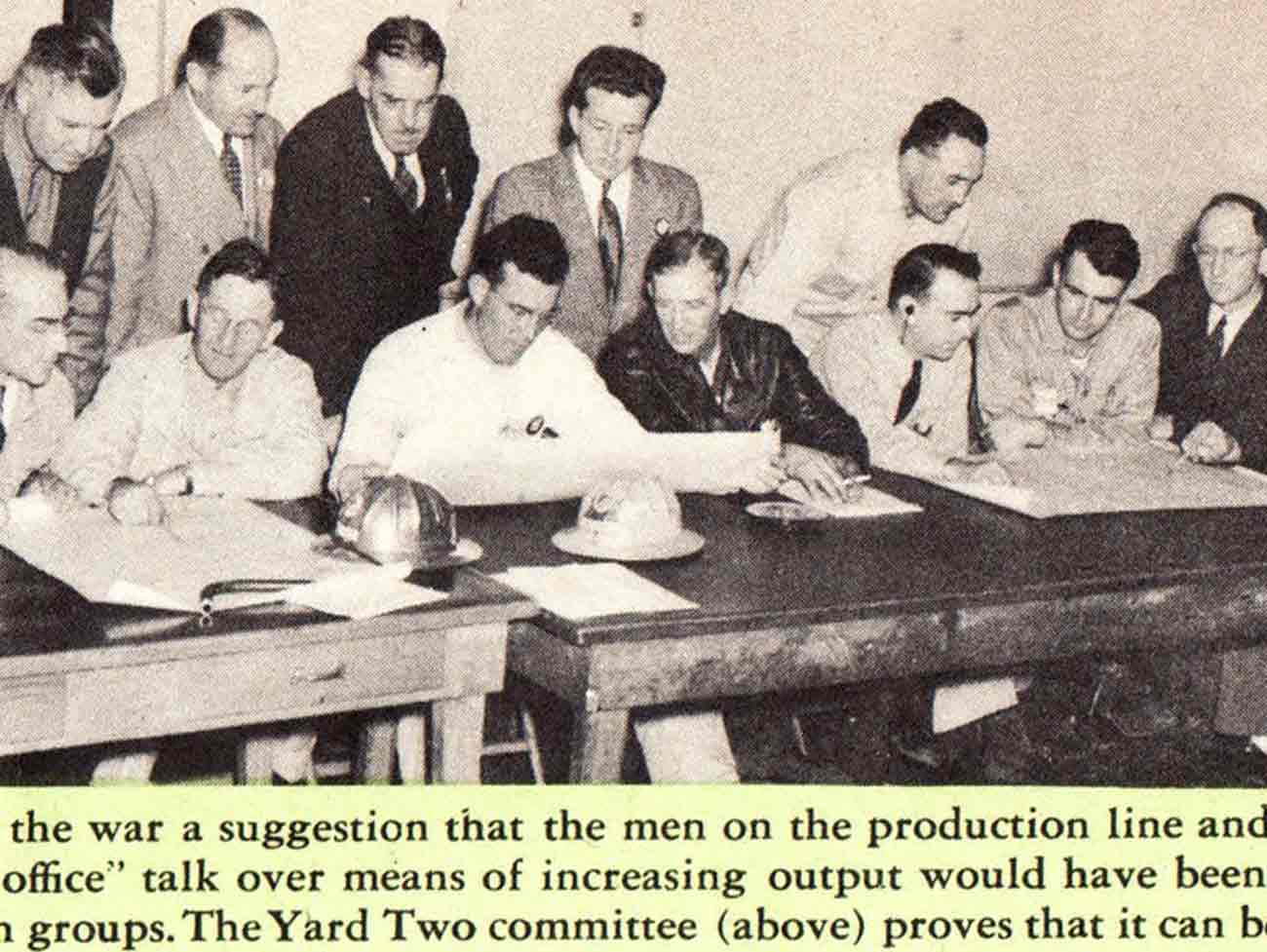
August 28, 2019
When labor and management work side by side
From war-era labor-management committees to today’s unit-based teams, cooperation …
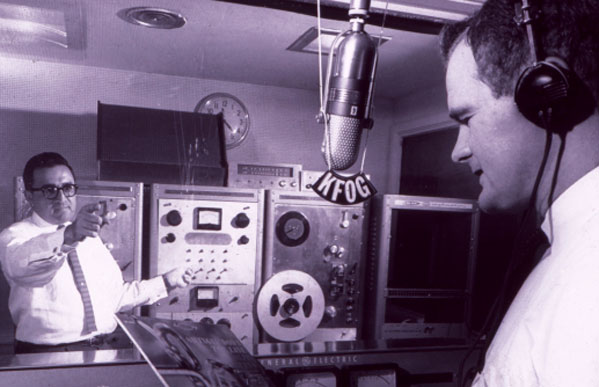
August 2, 2019
Thriving with 1960s-launched KFOG radio
Kaiser Broadcasting radio connected listeners, while TV stations brought …
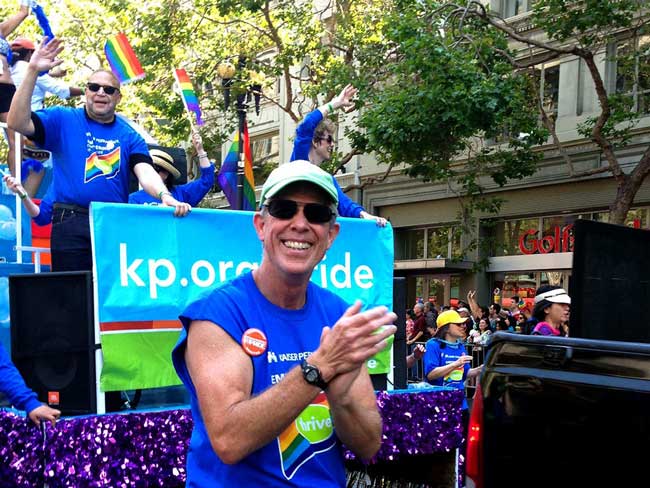
June 5, 2019
Breaking LGBT barriers for Kaiser Permanente employees
“We managed to ultimately break through that barrier.” — Kaiser Permanente …
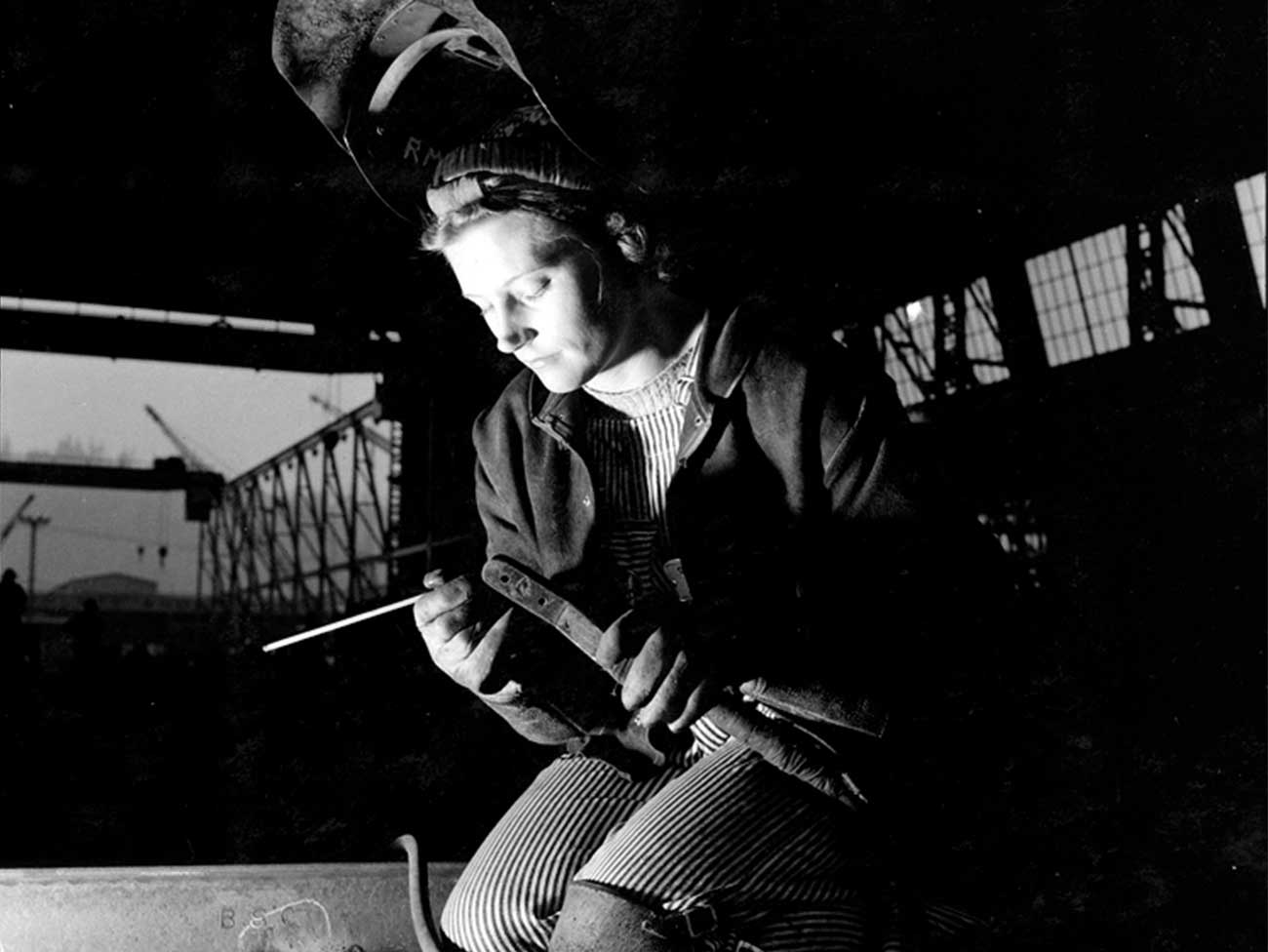
March 29, 2019
Equal pay for equal work
Kaiser shipyards in Oregon hired the first 2 female welders at equal pay …
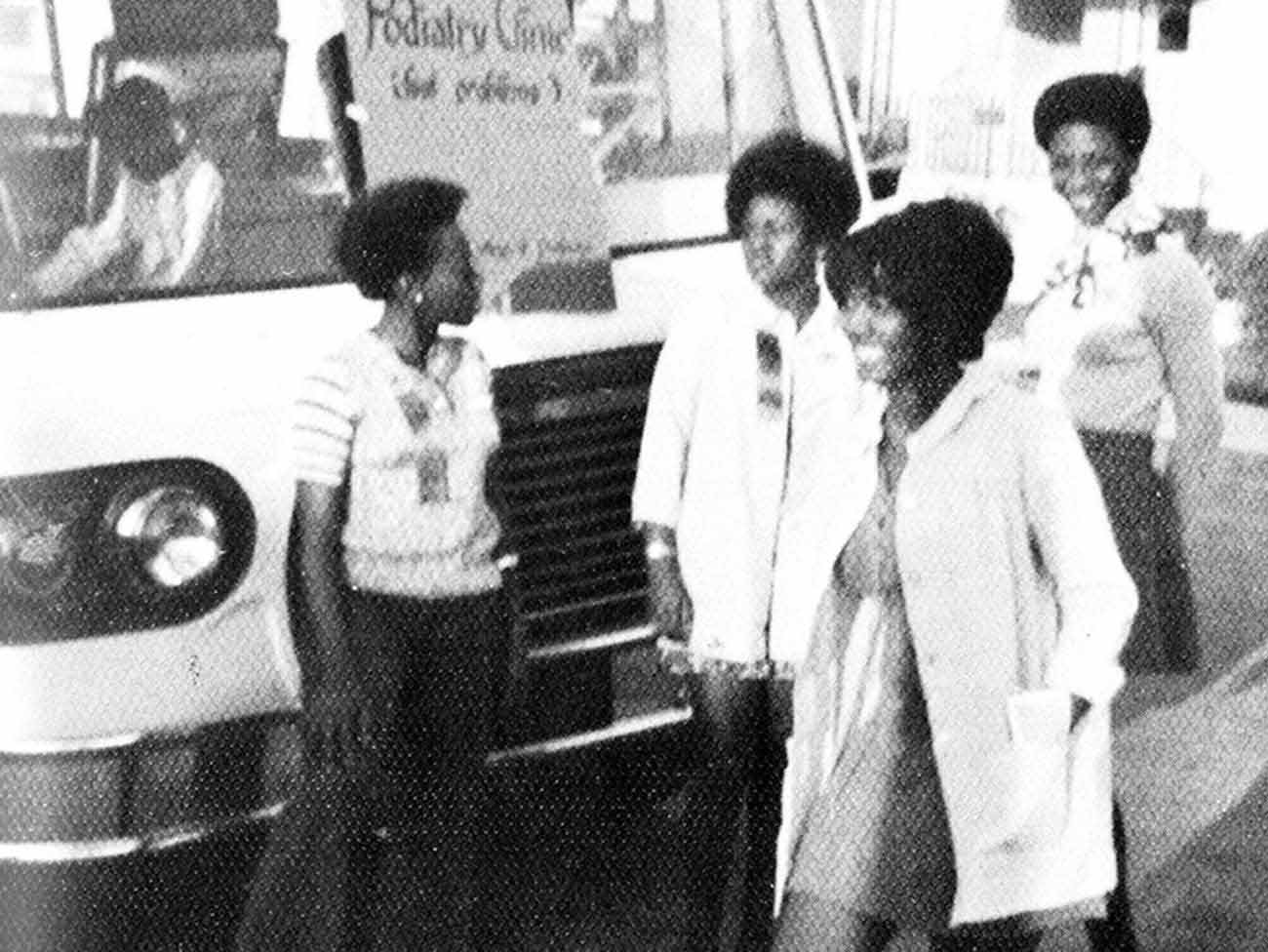
February 5, 2019
Mobile clinics: 'Health on wheels'
Kaiser Permanente mobile health vehicles brought care to people, closing …
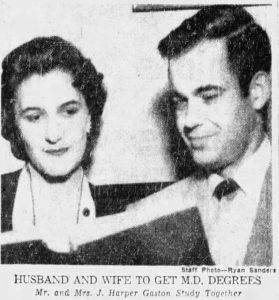
December 10, 2018
Southern comfort — Dr. Gaston and The Southeast Permanente Medical Group
Local Atlanta physicians built community relationships to start Kaiser …
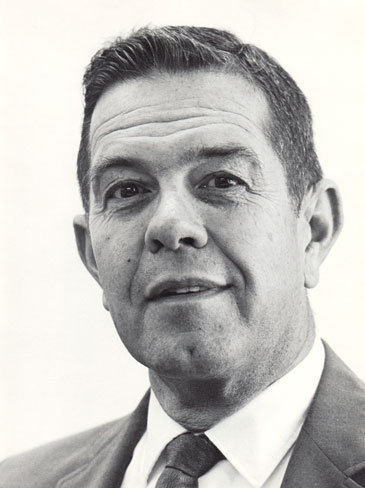
May 30, 2018
John Graham Smillie, MD, pediatrician and innovator
Celebrating the life of a pioneering pediatrician who inspired the baby …
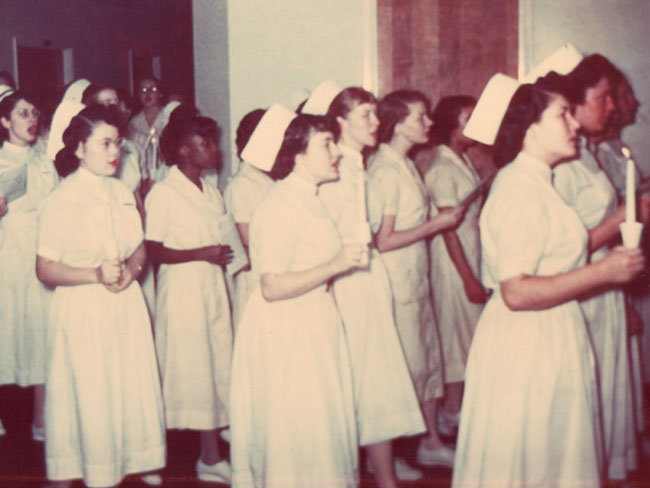
April 30, 2018
Nursing pioneers leads to a legacy of leadership
Kaiser Foundation School of Nursing students learned a new philosophy emphasizing …
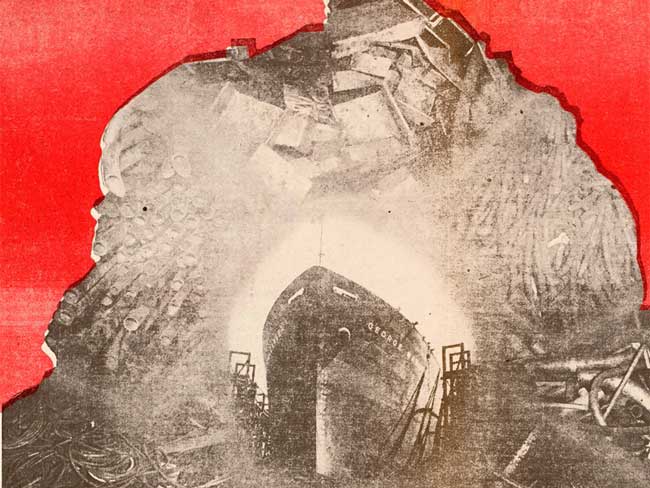
April 19, 2018
Wasting nothing: Recycling then and now
Environmentalism was a common practice at the Kaiser shipyards long before …
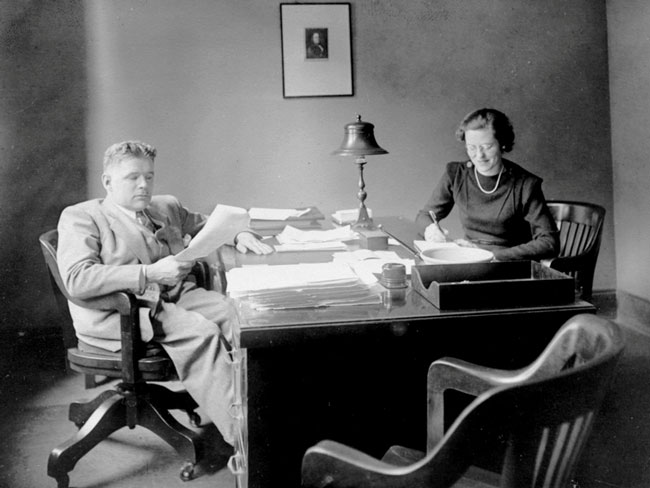
April 12, 2018
Harold Hatch, health insurance visionary
The founding of Kaiser Permanente's concept of prepaid health care in the …
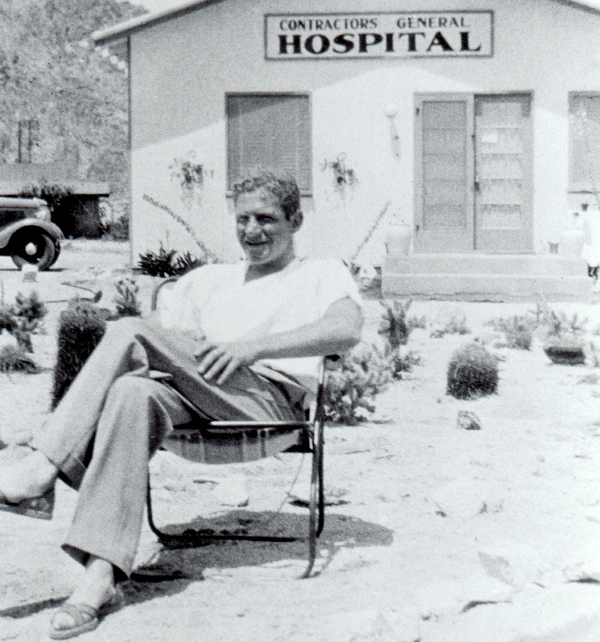
March 26, 2018
5 physicians who made a difference
Meet 5 outstanding doctors who advanced the practice of medical care with …
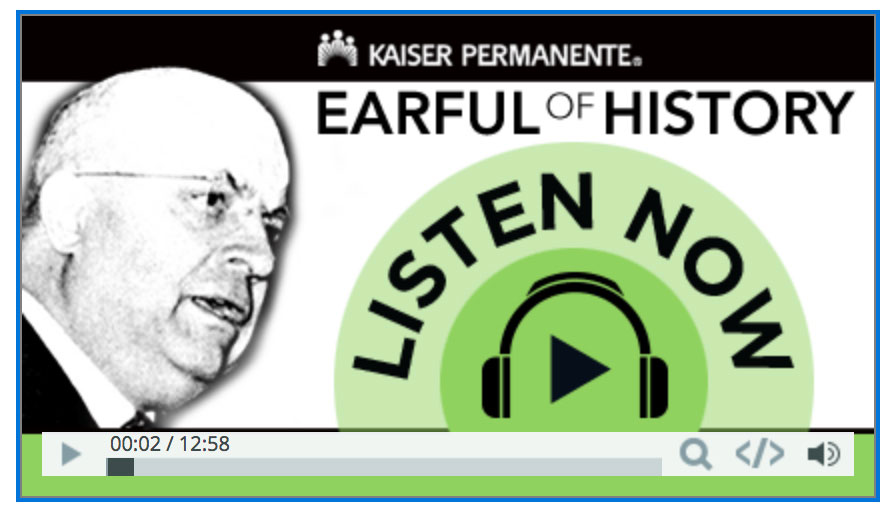
March 13, 2018
Henry J. Kaiser and the new economics of medical care
Kaiser Permanente’s co-founder talks about the importance of building hospitals …
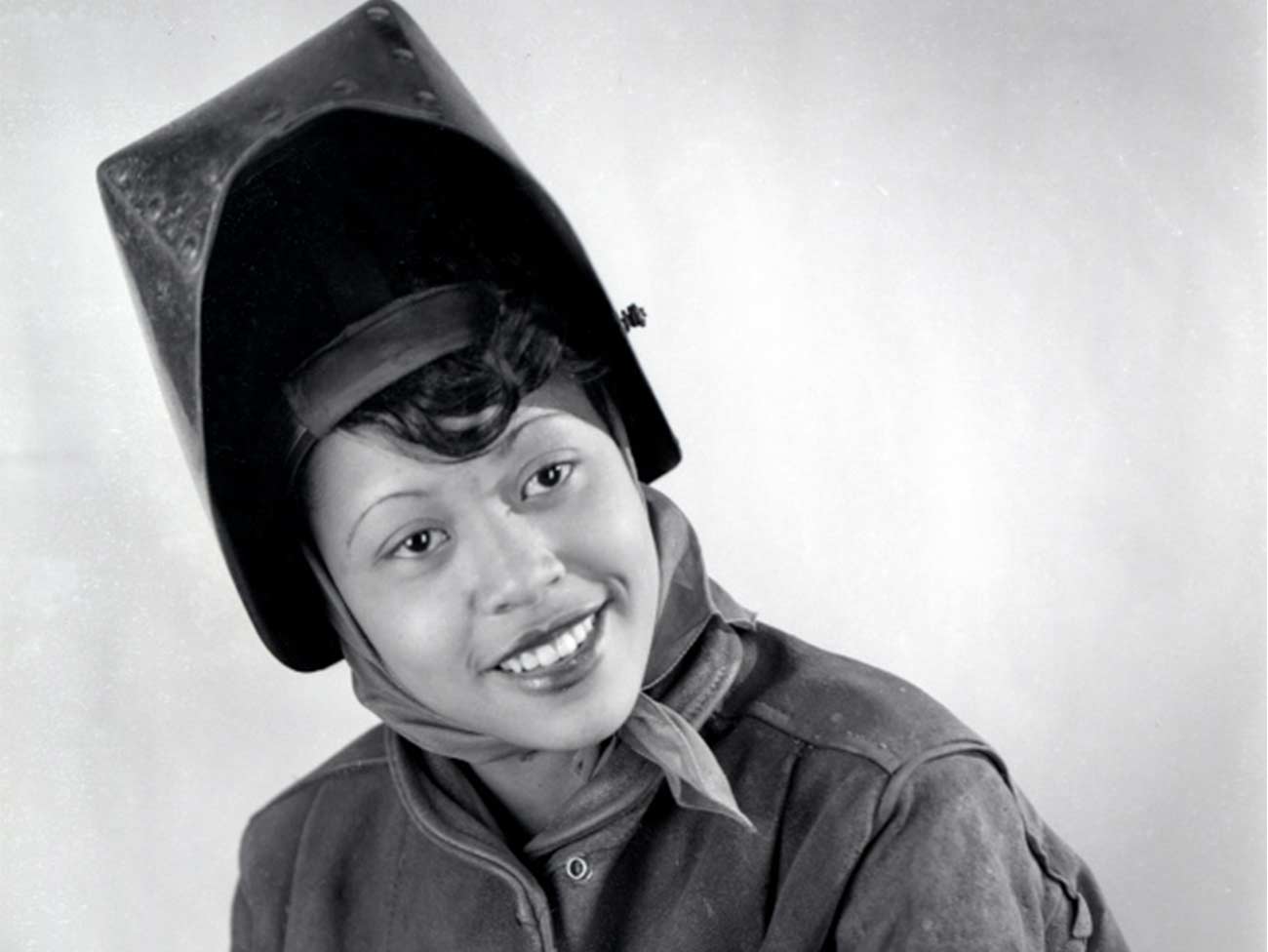
March 8, 2018
Slacks, not slackers — women’s role in winning World War II
Women who worked in the Kaiser shipyards helped lay the groundwork for …
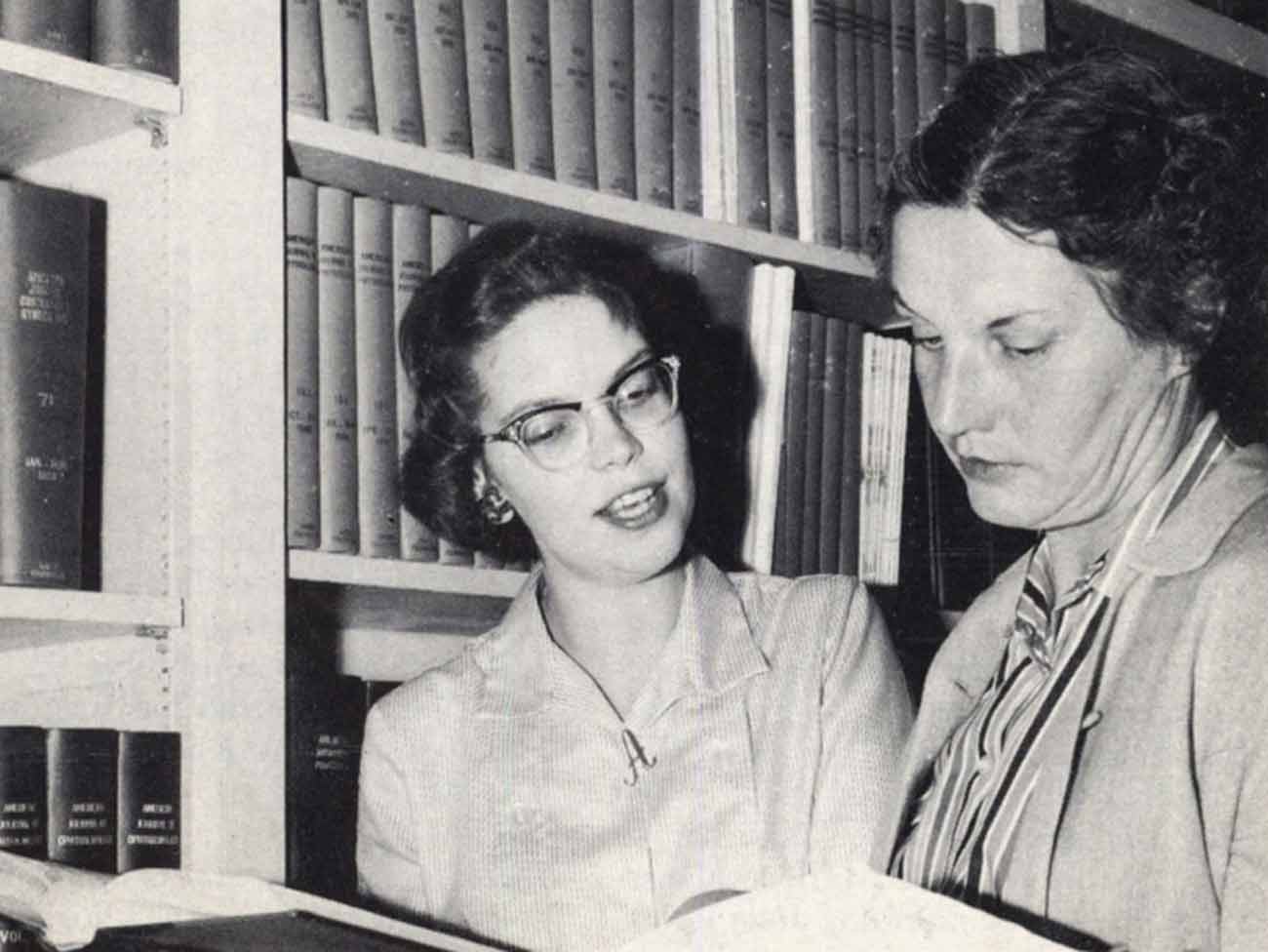
December 19, 2017
From boats to books: A history of Kaiser Permanente’s medical libraries
Kaiser Permanente librarians are vital in helping clinicians remain updated …
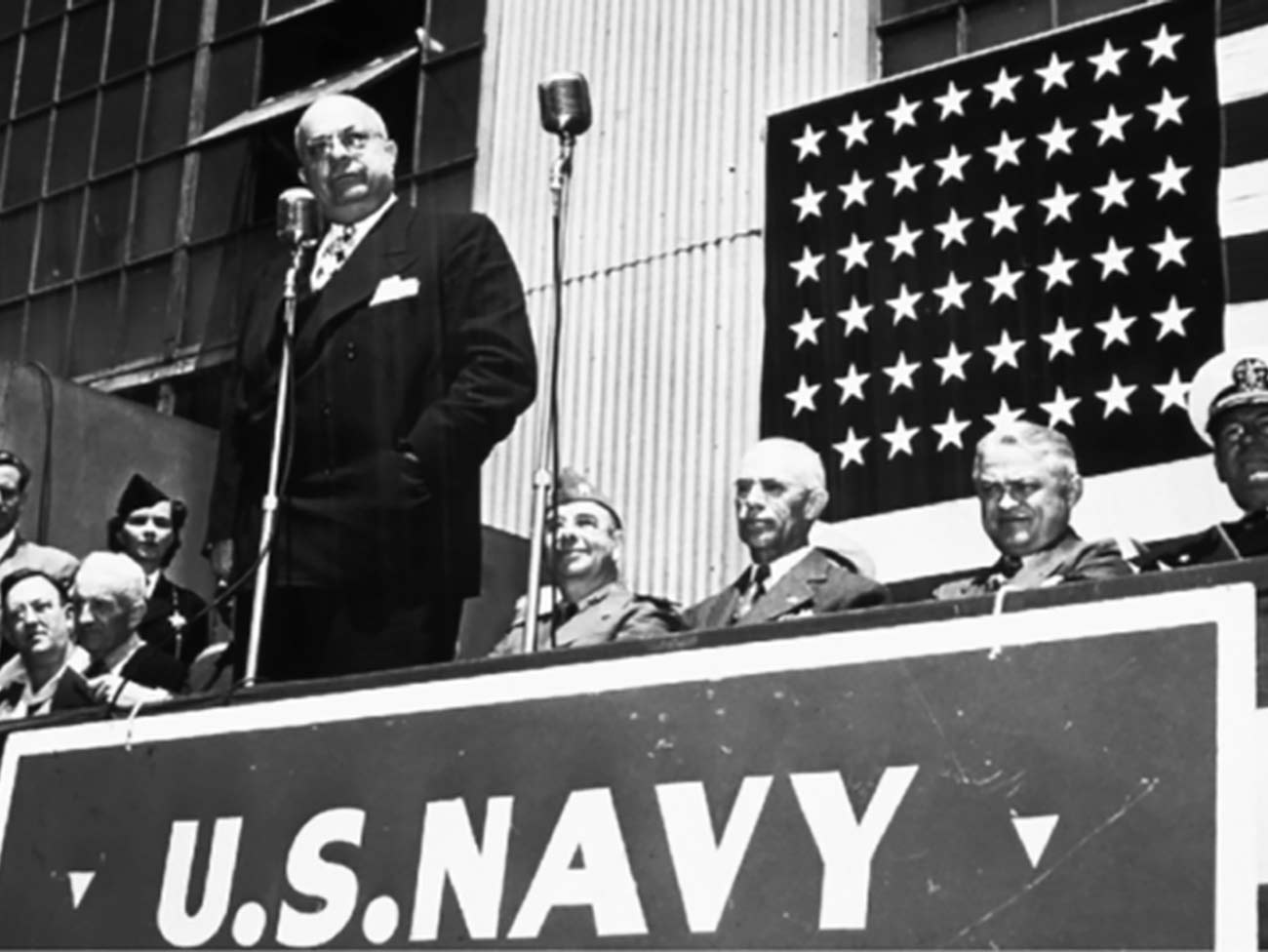
November 7, 2017
Patriot in pinstripes: Honoring veterans, home front, and peace
Henry J. Kaiser's commitment to the diverse workforce on the home front …
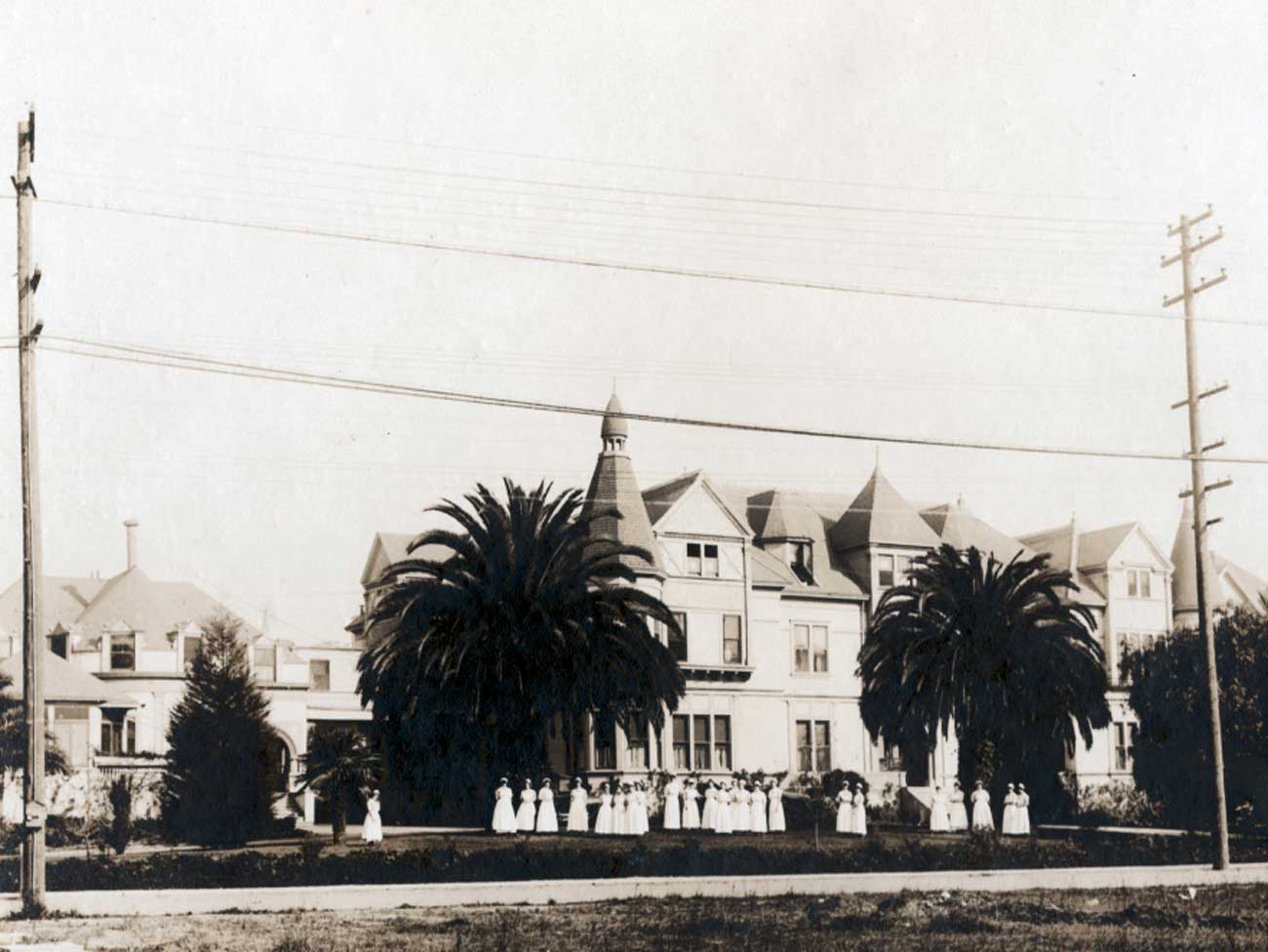
October 12, 2017
An experiment named Fabiola
Health care takes root in Oakland, California.
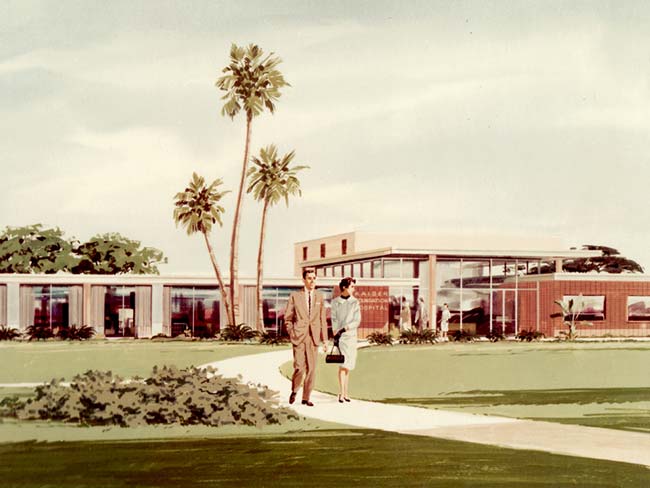
September 29, 2017
Harbor City Hospital: Beachhead for labor health care
The story of Kaiser Permanente's South Bay Medical Center finds its roots …

August 15, 2017
Sidney R. Garfield, MD, on medical care as a right
Hear Kaiser Permanente’s physician co-founder talk about what he learned …
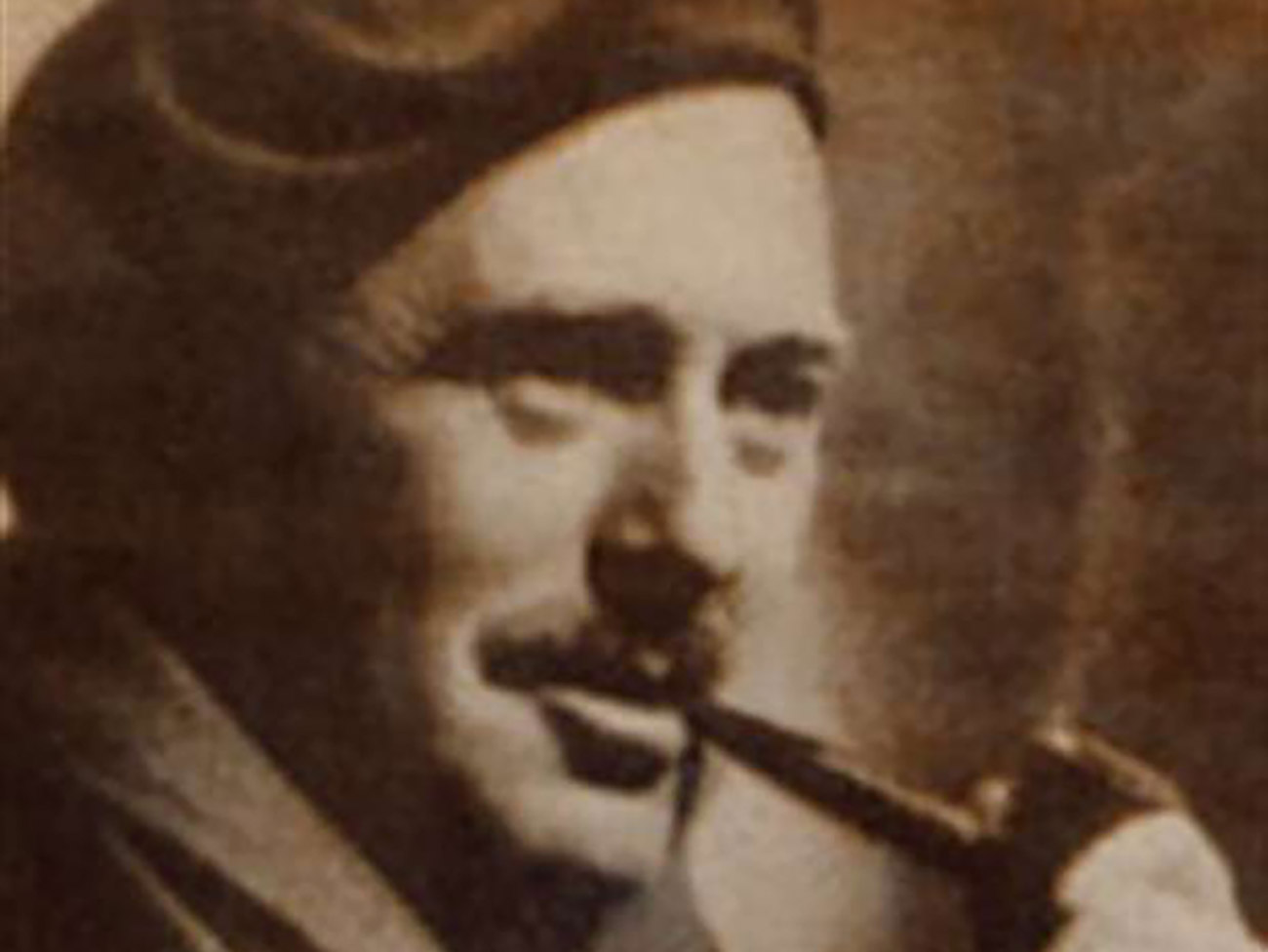
August 10, 2017
‘Good medicine brought within reach of all'
Paul de Kruif, microbiologist and writer, provides early accounts of Kaiser …